into healthcare

p.9 Namibia's Path to Universal Health Coverage
p.12 Regulatory Shifts Empower Integration
p.25 Transforming Member Journeys










1
389



























into healthcare

p.9 Namibia's Path to Universal Health Coverage
p.12 Regulatory Shifts Empower Integration
p.25 Transforming Member Journeys










1
389


























Editor in Chief: Zola Mtshiya
Copy Editor: Peter Wagenaar
Project Co-ordinator:
Simamnkele Dingiswayo
Layout & Design: Mariette du Plessis
Cover
Taken on location at: East London
Photographer:
Dane Fortein Photography daneforteinphoto.co.za
Advertising
Hloniphile Chavango t. 011 537-0200
e. HloniphileC@bhfglobal.com
Published by the Board of Healthcare Funders
REGISTERED OFFICE
South Tower, 1Sixty Jan Smuts
Jan Smuts Avenue Cnr Tyrwhitt Avenue, Rosebank, 2196
COMPANY REGISTRATION
2001/003387/08
CONTACT DETAILS
Tel: +27 11 537-0200
Client Services: 087 210 0500 web: www.bhfglobal.com email: conference@bhfglobal.com

There are moments in healthcare when the future feels just within reach, not through solitary breakthroughs, but through the collective force of many moving as one. This is one of those moments.
In this edition of BHF360°, we explore the theme “Collaborating for Value – Innovation Through Partnerships ” — a call to action that resonates through every article. Across these pages, you will discover how strategic partnerships, between public and private sectors, across borders and disciplines, and powered by bold technologies are reshaping the future of access, equity, and sustainability in healthcare.
From Namibia’s universal health coverage roadmap and regional regulatory reforms to case studies on employer-funder models, integrated care, and the fight against healthcare fraud, this edition shows what happens when collaboration moves from intention to action. Our cover story celebrates one such catalyst: Ziyanda Mavumengwana, recipient of the 2024 Dr Clarence Mini Titanium Award for Young Achievers. A clinical psychologist, author, and researcher, Ziyanda is transforming how South Africa approaches mental health — reminding us that innovation lives not only in data and delivery models, but in empathy and community-rooted care.
At the Board of Healthcare Funders, we have long believed that partnerships are not a ‘nice to have’ — they are the operating system of a modern, resilient health system.
This year’s conference theme reflects our shared commitment to equity, sustainability, and bold transformation. As you explore this magazine and participate in the days ahead, may you be reminded: the future of healthcare will not be built in isolation but in solidarity.
To all delegates joining us in Cape Town and across the region, welcome. We are honoured to have you with us.
Zola Mtshiya Head of Stakeholder Relations and Business Development,
BHF
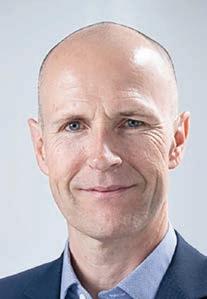





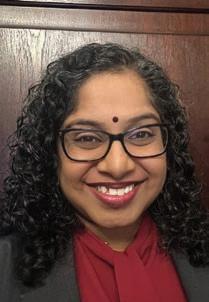




Underpowered primary care in South Africa’s commercial sector drives costly, fragmented, hospital-centric care. Empowering GP-led teams and adopting

In a world where healing often feels like an abstract idea, Ziyanda is carving a different path — one rooted in realness, resilience and radical accessibility. As a clinical psychologist, award-winning author, researcher and public speaker, she is reimagining what it means to recover, thrive and take ownership of your story. Her work across rural development, personal healing and public education has earned her national recognition, but at her core, she remains deeply committed to one mission: making psychology not just understood, but lived. As our 2025 cover star, she reminds us that healing is not about perfection — it’s about permission to be whole.
Congratulations on being the recipient of the Dr Clarence Mini Titanium Award for Young Achievers! What does this recognition mean to you personally and professionally?
AI am still reeling from the joy of that recognition. My trophy is currently my favourite unit of acknowledgement. We do the work that we do because we believe it is important; it is deeply satisfying when others recognise it as important too. It is validating and encouraging. More than the trophy, the recognition reiterated that there is credible value in my work.
The trophy came with a cash prize. As someone who is always pursuing developmental initiatives, the cash prize was a helpful enabler in advancing my efforts. Oh, and my trophy is stunning!.
You wear many hats — senior psychologist, PhD candidate, private practice owner and author. How do you stay centred while managing so much?
AI know it looks like many things, but in essence, I wake up and do one thing – I do my part to improve outcomes for my country, fellow citizens, loved ones and myself to whatever extent is realistically possible. That looks different every day, varying from role to role, but in principle I wake up and do just that. Sometimes I make giant strides, sometimes all I can manage is baby steps.
Your self-published book, You're Okay, But the Stuff That Happened to You Wasn't, has touched many lives. What inspired you to write it?
AMy motivation was two-fold. One was to offer therapeutic insights in the form of a more accessible tool, one that is cheaper than traditional psychotherapy as we know it. Secondly, it was a fundraising effort to help raise capital for my life-long dream, i.e. establishing a contextually relevant early childhood development centre for rural pre-schoolers. Each time individuals or organisations purchase copies of the book, we get closer to that dream and, in turn, they get a tool that weaves classic and contemporary psychology theories with personal experiences to facilitate healing and actualisation.
Your PhD research focuses on improving cognitive outcomes for young rural children. Why is this work close to your heart?
AI was born, raised and schooled in Tsomo, a village in the rural Eastern Cape. In the later years of my schooling, I moved to what was then Queenstown (now Komani) and later Gqeberha. I have therefore had experiences of both the urban and rural schooling spectrums and know that lack of stimulation and opportunities can really undercut someone’s potential. Unlike other areas of development, cognitive outcomes aren’t really something you can leave to chance. They require intentional effort in creating opportunities for stimulation and learning.
My doctoral work is therefore my life’s work: preparing young rural minds to be ready for the demands school will place on them, and to give them the best odds of succeeding in their scholastic pursuits.
What do you believe is the biggest misconception about healing?
AI think most people underestimate its longitudinal nature. Adversity is a feature of human existence, and the human experience exempts nobody. Inevitably, the human journey will, for as long as we live, impose raptures and injuries we need to mend, soothe and heal.
If you could give one piece of advice to young people navigating their mental health journeys, what would it be?
AHealing is long term, so tomorrow is still another day. Your life isn’t a perpetual case study for analysis — so in your attempts to self-improve, don’t forget to live.
Looking ahead, what are you most excited about?
AI have about 18 months to go before I complete my doctorate, God willing. I am doing a literal countdown. It is the most labour-intensive thing I have ever done, so I am looking forward to wrapping it up.
Last question — what’s the mantra you live by these days?
AAs clichéd as it sounds, the mantra of ‘to whom much is given, much is expected’ governs my psyche. I am acutely aware that some of my milestones have been escalated by life dealing me fair cards. I have parents who are still alive to scaffold my development, have a supportive family and, most importantly, a capable mind, thanks to genetics — to just mention a few. Though I believe I have been a reasonably good custodian of my gifts, I am aware that they are gifts and that not everyone has them. Those who have them bear the responsibility to develop, share and recycle them.
Aligning health systems requires actionable data, shared goals, smart incentives, effective evaluation, and collaborative leadership—key drivers of efficiency, better outcomes, and lasting change.
At iFHP, we’ve been working with our global membership to explore what that kind of change looks like in practice. Drawing from our recent white paper and relevant case studies, we’ve identified five recurring themes that can help guide a more systemic approach: data, outcomes, payment models, metrics and evaluation, and leadership and coordination.
Health systems are often siloed – financially, clinically and operationally. Providers are rewarded for volume, payers focus on claims and patients face a maze of disconnected services. The result is inefficiency, poor outcomes and the potential for frustration on all sides.
A systems-thinking approach seeks to realign the parts: defining shared outcomes, designing the incentives to support them and allowing for innovation in how care is delivered – without micromanagement. It also means being honest about what gets in the way: power dynamics, short-term planning and a lack of meaningful evaluation.
ity and too often, the data we do collect isn’t useful for driving improvement.
Take Singapore’s Healthier SG programme, launched in July 2023 to drive a shift towards preventive healthcare: the programme prioritises shared data infrastructure with incentives and support to help clinics upgrade their systems to feed into the National Electronic Health Register.
TAKEAWAY: Build data collection into care delivery from day one. Define the right metrics and fund the systems needed to support long-term data sharing with providers and with patients.
Outcomes: Defining shared goals
In fragmented systems, everyone measures success differently. For change to take root, stakeholders need to agree on what good looks like – and build trust in the process of getting there.
By Chris Watney CEO: INTERNATIONAL FEDERATION OF HEALTH PLANS (IFHP)
System change starts with data – but not just any data. It has to be designed into the delivery of care from the beginning. Too many systems still lack interoperabil -
A good example comes from a US valuebased care initiative in psoriatic arthritis. Led by consultancy BCollaborative, payers, providers, pharmaceutical partners and data experts came together, pooling data and agreeing on patientfocused metrics, such as reduced hospitalisations and improved wellbeing, rather than process adherence.
TAKEAWAY: Use shared data to understand and minimise variation, co-create meaningful outcomes and get everyone aligned on the same definition of success.
Payment models:
Redesigning incentives If incentives drive behaviour, then we shouldn’t be surprised when fee-for-service drives overuse and inefficiency. Changing that means designing payment models that reflect shared goals.
The ‘True Age’ initiative from Dutch insurer Zilveren Kruis is a creative example, engaging employers in preventive health by aligning population health outcomes with business objectives. In Singapore, qualitybased bonuses for primary care teams are pooled and shared, meaning everyone benefits from better outcomes.
TAKEAWAY: Start with shared outcomes, then work backwards to build incentives that make those outcomes more likely.
Metrics and evaluation:
Measuring what matters
Evaluation is often an afterthought, but real system change needs it to be foundational. What gets measured matters and systems must invest in measuring both outcomes and experience.
Martini-Klinik in Germany is a case
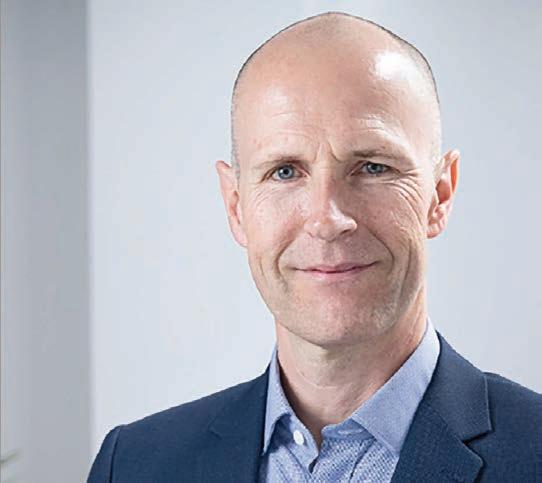

in point. From its inception, it has gathered patient-reported outcomes data before, during and long after treatment, allowing for ongoing benchmarking, better results and sustainable operations.
TAKEAWAY: Agree early on how you’ll measure success. Fund the infrastructure and skills needed to track, evaluate and adapt.
Leadership and coordination: Enabling collaborative change
This kind of work requires a different kind of leadership – one that convenes, coordinates and creates the space for others to innovate.
In the previously mentioned psoriatic arthritis initiative, a third-party facilitator helped rebuild trust among stakeholders and reframe the effort as a collective one. Leaders set a clear vision (‘tight’), allowed for flexibility in delivery (‘loose’) and main -

tained accountability on outcomes (‘tight’).
TAKEAWAY: Leadership is about alignment and enablement. A ‘tightloose-tight’ approach encourages both; trust the system’s actors to innovate once outcomes are clear.
System change is hard. It takes more than strategy documents or pilot projects – it takes mindset shifts, cross-sector collaboration and a long-term view. But insurers can play a meaningful role, not just as funders, but as enablers of health system transformation.
By championing better data, shared outcomes, smarter incentives, meaningful evaluation and collaborative leadership, we can move from fragmentation to alignment – and build health systems that work better for everyone.

By Heinrich Nashenda TRUSTEE OF THE GEMHEALTH MEDICAL AID SCHEME AND COUNTRY REPRESENTATIVE FOR NAMIBIA
Namibia is taking decisive steps toward achieving universal health coverage (UHC), positioning itself as a regional exemplar in health equity, access and innovation. With Cabinet approval of the national UHC policy and a robust implementation roadmap guided by the SWAPO Party Manifesto Implementation Plan (SMIP) 2025-2030, the country aims to ensure that every Namibian can access quality healthcare services without financial hardship.
In Namibia, UHC is seen as more than a health policy for Namibia. It intends to serve as a cornerstone for national development, reflecting a bold commitment to a healthier, more equitable society. The policy aims to ensure access to all essential healthcare services (promotive, preventive, curative, rehabilitative and palliative) at a sufficient quality while safeguarding citizens against out-of-pocket financial risks.
Speaking on World Health Day on 7 April 2025 with fellow Namibians, H.E. President Netumbo Nandi-Ndaitwah reiterated Namibia's collective resolve to implement UHC effectively, with a focus on maternal and child health, disease prevention and public health awareness. In her address, she stated: "As a government, we pledge to take decisive action to ensure the urgent enactment and full implementation
of the universal health coverage law. Our commitment for the next five years includes guaranteeing access to healthcare for all citizens, promoting preventive care, expanding public health coverage and improving the quality of services in public health facilities."
This clearly points to government’s focused intent under her leadership to improve access to specialised healthcare providers in district hospitals across the country, including paediatricians, obstetricians, gynaecologists and internal medicine specialists. The primary objective of the UHC policy is to serve the people, especially the most vulnerable and at-risk population.
The policy outlines a clear pathway intended to strengthen health systems and enable an environment that supports healthy lives and well-being for all Namibians. The key objectives include:
Enhancing the availability of comprehensive preventive, curative, rehabilitative and palliative care services; Providing health and social services that are safe, effective and person-centred, and which respect and respond to individual needs and values;
Guaranteeing that all Namibians are protected from financial hardship when seeking health and social welfare services through efficient and sustainable financing mechanisms;
Enhancing equitable access to care by removing structural barriers to providing and accessing comprehensive health and social services;
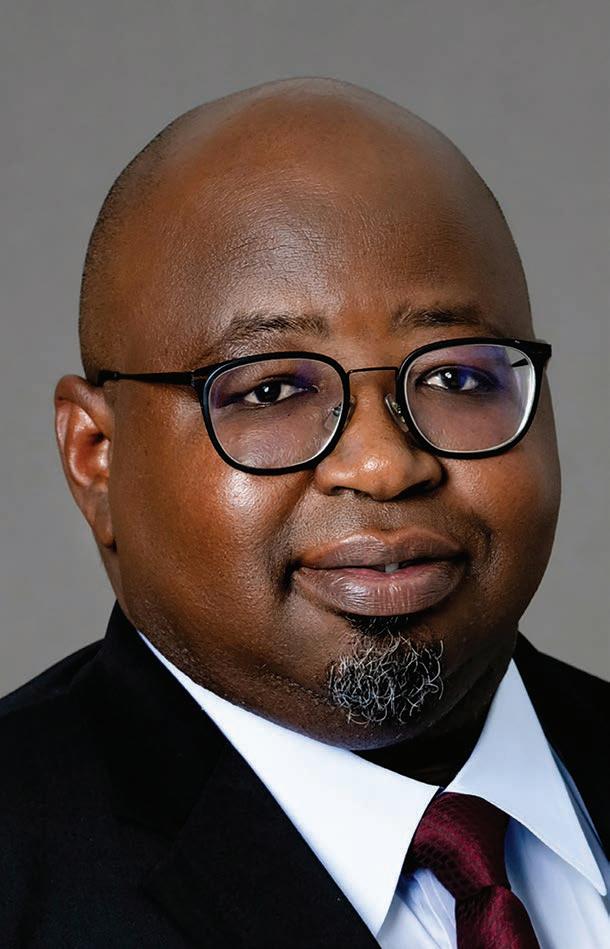
Heinrich Nashenda, Trustee of the Gemhealth Medical Aid Scheme and Country Representative for Namibia on the Board of Healthcare Funders (BHF)
Strengthening health system governance and accountability, while promoting community ownership of healthcare;
Increasing the capacity of health systems for resilience and responsiveness to emerging threats, minimising health service interruptions during emergencies; and Improving the determinants of health for all in Namibia.
Namibia's UHC vision is underpinned by three success factors of access, quality and affordability. As a result, an ambitious set of goals and projects has been outlined, dubbed the Key Pillars of the UHC Strategy:
The government currently operates one national referral hospital, three intermediate hospitals, 34 district hospitals, 44 health centres, 280 clinics and 9996 outreach points across all 14 regions of Namibia.
The goal is to upgrade and maintain these facilities to meet or exceed private healthcare standards. These advanced facilities are intended to decentralise care, reduce referral backlogs and ensure regional equity in health services.
Focusing on prevention and early intervsention.
Promotion of immunisation and oral health programmes nationwide.
Construction of 35 new primary healthcare clinics in underserved areas.
Introduction of mobile health vans to support rural outreach.
Expansion and mapping of mental health centres.
In order to address capacity/workforce gaps, the government plans to recruit over 8000 healthcare professionals, including specialists, and offer rural health incentives. Training and retention strategies, especially for rural workers will be prioritized to ensure quality care delivery.
An integrated e-health system will be rolled out across all
public facilities by 2026. This will enhance record accessibility, improving data-driven decision-making and supporting telemedicine solutions for remote areas.
The policy emphasises improved access to essential medicines through:
Establishment of PPP-run pharmacies
Promotion of local pharmaceutical manufacturing
Price regulation of essential drugs
Modernisation of the distribution fleet to improve lastmile access
UHC includes a strong focus on pharmaceutical access. Plans include the establishment of PPP-run pharmacies, the promotion of local pharmaceutical manufacturing and strict price regulation of essential drugs. An updated distribution fleet will ensure nationwide access to medicines.
With the formal approval of the UHC policy, the Cabinet mandated a multisectoral task force, under the leadership of the Office of the Deputy Prime Minister, to oversee its implementation. This includes the Ministries of Works and Transport, Finance, Health and Social Services and the National Planning Commission. These ministries are tasked with finalising implementation and funding strategies for Cabinet for endorsement. The success of UHC will depend heavily on cross-sectoral collaboration, which is set to become the hallmark of Namibia’s healthcare future.
The Namibian government has earmarked more than N$3 billion annually for healthcare reform, with UHC as a central pillar. Funding will be sourced through a combination of national budgets, public-private partnerships and innovative health levies.
According to the Ministry of Finance, a new health levy system is being explored to ensure long term policy’s sustainability without overburdening citizens. Funds raised through these levies would be ring-fenced and placed in the National Health Equity Fund, which aims to bolster healthcare financing. The task team will also explore strategies for capitalising the Equity Fund as part of its mandate.
Policy Milestone: Cabinet approved Namibia’s Universal Health Coverage (UHC) policy and roadmap aligned with the SWAPO Manifesto 2025–2030.
Infrastructure Commitment: 35 new clinics, mobile health vans, and upgrades to over 300 existing facilities planned for equitable regional access.
Workforce Expansion: Over 8,000 healthcare professionals to be recruited, with incentives for rural deployment and ongoing training.
Sustainable Financing: N$3 billion+ annual investment with health levies and a National Health Equity Fund to ensure affordability and access for all.
With approximately 85% of Namibia’s population relying on public healthcare services and an estimate of 500 000 citizens covered by private medical aid, the proposed Equity Fund seeks to bridge financial gaps in the health system. It is reported that citizens may eventuallypay a nominal fee, as low as N$4, for access to a comprehensive package of health services.
Namibia’s journey toward UHC, so far, is a testament to political will, policy coherence, and a vision grounded in solidarity, freedom and justice. As the country mobilises resources and strengthens its health system, it sends a powerful message to the region and the world that access to healthcare is a right, not a privilege.
Namibia’s model, with its focus on decentralisation, innovation, inclusivity and sustainability offers valuable lessons for other African nations striving to achieve UHC. As delegates gather in Cape Town for the 2025 BHF conference, themed Collaborating for Value: Partnerships Transforming the Future of Healthcare, Namibia’s UHC story stands as a beacon of possibility where bold vision meets realworld action.
Regulatory reforms are enabling integrated, multidisciplinary care by aligning governance with the shift toward patientcentred, team-based healthcare.
By Dr Magome Masike REGISTRAR: HEALTH PROFESSIONS COUNCIL OF SOUTH AFRICA
The World Health Organization (WHO) released health practitioner regulation design, reform and implementation guidance in 2024. The goal of the guidance is to optimise ‘practitioner utilisation to meet growing population needs and their role in the broader efforts to achieve universal healthcare and increase public trust in health systems’. According to Badr et al, practically the guidance ‘should help to enhance regulatory systems for health practitioners to protect the public in line with wider health system objectives’.
There is no doubt that holistic care models and integrated multidisciplinary healthcare delivery unite professionals with different expertise to deliver patient-centred care that is aligned with population needs and delivers better health outcomes.1, 2
The multidisciplinary healthcare team (MDT) approach draws strength from the diverse expertise of the team members, which is key to delivering holistic healthcare to patients. The regulatory universe has therefore started to shift towards ensuring that regulation and governance of professions adapt and align with this health system redesign.1 Health regulators like the Health Professions Council of South Africa (HPCSA) support the implementation of approaches through several regulatory enhancements to foster integrated practice.6
To provide comprehensive services to patients, some regulatory jurisdictions, such as those in the United Kingdom (UK) have long adopted multiprofessional practices involving various healthcare professionals working together to deliver comprehensive care. Similarly, Canada’s regulators are known for their strength in the primary care system, which largely comprises private medical

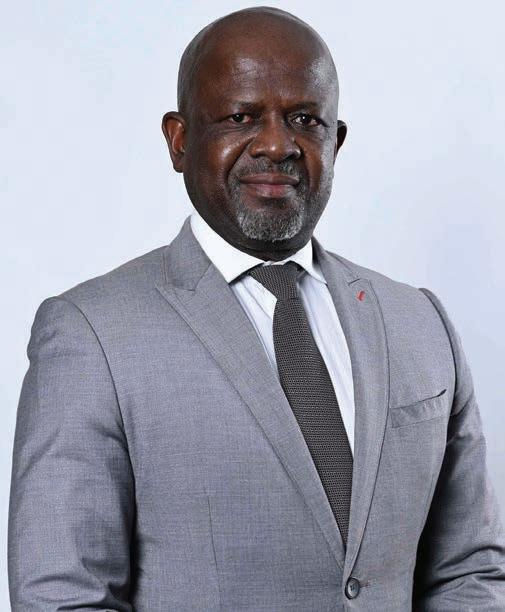
practices, which often include a range of healthcare professionals, such as specialists, psychologists, nurses and physiotherapists, facilitating a multidisciplinary approach to patient care. While team-based healthcare delivery models are also common in some European countries, such as Finland and Sweden, other European countries are struggling to find a balance that meet the demands.5
Revision of regulatory tools, including ethical guidelines
The HPCSA has made adjustments to its regulatory tools in order to facilitate MDT approaches to healthcare delivery. In this regard, the previous ethical guidelines that restricted health practitioners registered with the HPCSA and, for example, barred
them from sharing ‘his or her rooms with a person or entity not registered in terms of the Act’ were adjusted.
The revised version states that ‘a practitioner may provide healthcare services with other registered practitioners, persons registered in terms of the Act, or in terms of any other legislation regulating health professions, provided that the primary aim will be to enhance the quality of healthcare services to patients, and further that there is an express agreement, arrangement or model of rendering multidisciplinary-based, high-quality services or products to patients, structured to contain costs and enhance access to appropriate healthcare’.
This relaxation is contingent upon the following provisions:
1. the primary objective must focus
on optimising patient outcomes through quality enhancement of healthcare services;
2. such collaboration must be governed by a formalised agreement or structured framework explicitly designed to facilitate multidisciplinary care delivery; and 3. the operational model must prioritise cost-efficiency while ensuring equitable access to evidence-based healthcare intervention.6
This framework prioritises delivering high-quality care or products and improving patient access to appropriate healthcare services.6 These amendments essentially enable health professionals to form multidisciplinary group practices, including the ability to share fees and render services collectively.
The HPCSA is reforming regulations to support multidisciplinary teams (MDTs) in delivering coordinated, patient-centred care.
Updated ethical guidelines now permit practitioners to collaborate across professions under structured agreements focused on quality, access, and cost-efficiency.
These reforms enable shared practice models, allowing professionals to co-locate, share fees, and deliver care collectively.
The shift aligns with the WHO’s 2024 guidance encouraging regulation that enhances public trust and meets evolving healthcare demands.
Countries like the UK, Canada, and Finland have successfully adopted multiprofessional care models, offering lessons for local implementation.
CPD requirements now emphasise interprofessional learning, supporting the development of crossdisciplinary competencies within MDTs.
Initiatives like joint case reviews, presentations, and collaborative learning events are encouraged to embed continuous development.
These regulatory changes aim to break down silos, promote integration, and ensure healthcare professionals are better equipped to address complex patient needs through collaborative care delivery.
Healthcare professionals are encouraged also to engage in lifelong learning through continuous professional development (CPD) in order to address the country’s emerging health needs and priorities. The MDT approach draws strength from the diverse expertise of the team members, which is key to delivering holistic healthcare to patients; this makes continuous learning critical to support MDT competence development.1 It is widely understood that MDT activities provide an opportunity for interprofessional knowledge and skills exchange, which is in line with the CPD framework, such as
breakfast meetings or presentations and case studies.7
Although there is still a lot of ground is to be covered, the HPCSA, like regulators worldwide, is on a transformative path to foster team-based care through amended Ethical Rules of Conduct to promote close collaboration across professions to deliver high-quality care.6 These changes reflect the HPCSA’s strategic focus on breaking down systemic fragmentation and the entrenched silo mentality to foster a regulatory environment conducive to integrated, patient-centred care, in line with global trends.
(1) Meadows D, Maclaren J, Morton A, Ross D. Determining skill mix and optimal multidisciplinary team composition: A scoping review. In Healthcare Management Forum, 2024; SAGE Publications Sage CA: Los Angeles, CA: 08404704241293095.
(2) Cadet T, Cusimano J, McKearney S, et al. Describing the evidence linking interprofessional education interventions to improving the delivery of safe and effective patient care: a scoping review. Journal of Interprofessional Care 2024; 38 (3): 476-485.
(3) Janković SM, Nikolić LI, Marković SZ, Kastratović DA. Multidisciplinary teams in healthcare. Hospital Pharmacology-International Multidisciplinary Journal 2024; 11 (1): 1370-1376.
(4) Khatri R, Endalamaw A, Erku D, et al. Continuity and care coordination of primary health care: a scoping review. BMC Health Services Research 2023; 23(1): 750.
(5) Bourgueil Y, Marek A, Mousques J. Medical group practice in primary care in six European countries, and the Canadian provinces of Ontario and Quebec: What are the lessons for France? Sante Publique 2009; 21 Spec No 1: 27-38.
(6) Health Professions Council of South Africa. Ethical Rules Of Conduct for Practitioners Registered Under the Health Professions Act, 1974. 2023.
(7) Health Professions Council of South Africa. Continuing Professional Development (CPD) Guidelines, 2024
Cimas’ adaptation of its integrated care model in response to changing health challenges while maintaining a strong focus on partnerships and collaboration to meet evolving healthcare demands.
By Thando Kembo CHIEF OPERATING OFFICER, CIMAS HEALTH GROUP
Inspiring healthier communities has been at the core of Cimas Health Group's strategy for decades. Our history, though initially rooted in claims administration, rapidly evolved from the 1980s in response to a changing healthcare (and economic) environment.
While our structure is an anomaly in some jurisdictions, it has enabled us to adapt to context where we have experienced multiple economic fluctuations. These shifts have not only impacted economic activities but significantly strained health access.
Our environment has led to a disparate healthcare system that does not encourage collaboration among practitioners, even when dealing with the same case.
Integrated care aims to improve health and well-being by coordinating and collaborating between different health and social care services. Our implementation of integrated care was largely thrust upon us, with our entry into diagnostics in 1985. An opportunity to invest in pathology arose when an exiting group was folding operations at a time when there was no other private pathology investment. Additionally, our entry into primary care in 2004 was in acknowledgement to an economic collapse that led to providers rejecting medical aid.
Our members have always held us in high regard to lead in all aspects related to health. Now, 80 years later we co-ordinate and collaborate care within our facilities, which have grown to 14 primary care clinics, 15 pharmacies, 7 dental units, 6 medical laboratories, 2 tertiary care hospitals, 2 mental and substance abuse hospitals, 2 iGo (wellness brand)
bases, 3 radiology centres with basic and advanced radiology, 1 optometry centre, 1 emergency evacuation base, 1 dialysis clinic and, recently a joint venture with a group of specialists. These facilities attend to nearly 1,000,000 patient visits per annum.
Our collaboration would not be complete without incorporating our service partners. These are the doctors and facilities who work with us in keeping members at the centre of the care we both deliver. These partners are not only collaborators in disciplines and geo-locations where we are not present, but also in disciplines and areas we both operate. This collaboration allows strengthening of service delivery through sharing of non-competitive best practices where we also contribute through insights gained in our operations.
Through our facilities and strong collaboration with our partners, we avail members a curated health-
care journey where their wellbeing is our unifying driver. We recently implemented co-review processes between our Managed Care team, hospitals, admitting practitioners and the members themselves for hospital stays. While there may be some implementation challenges, these initiatives become possible when we collaborate. Once a concept is proved, we find winning over the skeptics is often eased.
In 2018, we began our journey to incorporate technology into our delivery mechanism. We commenced with digitising all processes and ensuring medical records were digital. The next stage was digitalising our business processes and workflows, transforming them to be more efficient and effective. Since then, we have proceeded to use of interactive applications, integrating all service units for a single point of truth and automated online interactions with most of our stakeholders. Recently, we have begun implementing robotic process automation in some of our functions.

Additionally, the use of AI has been incorporated in our diagnostic equipment and data driven decision making processes. Our investment in technology, which has been significant in the last seven years, is in a bid to improve coordination and collaboration through data sharing and information availability to relevant stakeholders.
Regional and international benchmarking is key in ensuring we expand our service offerings and standards. Our affiliation with governing bodies and like-minded operators at these
Cimas has evolved from claims administration to a resilient integrated care model.
Economic shifts and healthcare system gaps spurred its expansion into diagnostics and primary care.
Today, Cimas operates 50+ healthcare facilities with nearly 1 million annual patient visits.
Strong collaboration with internal teams and external partners ensures coordinated, patient-centric care.
levels challenges us to deliver better and more. Currently, we are busy implementing processes that support delivering value to the customer. Value is defined as outcomes that matter to the patient vis-a-vis the cost to deliver those outcomes. We have, in the last two years, begun measuring outcomes at our facilities for diabetes, hypertension and dialysis, and are actively tweaking our delivery mechanisms to maximise value for our members. This is the demand of the modern consumer, and, as always, we are up for the challenge.
Integrated technology ensures efficiency, data-driven decisions, and seamless stakeholder interactions.
Regional and international benchmarking drives continuous improvement and service expansion.
Outcome measurement for chronic conditions like diabetes and hypertension helps maximise care value.
Digital transformation since 2018 includes electronic records, process automation, and AI diagnostics.
By Dr Ali Hamdulay CEO: METROPOLITAN HEALTH CORPORATE
South Africa's healthcare system is at a pivotal moment. While the public sector grapples with funding shortages, workforce constraints and growing demand, the private sector operates in a parallel system that remains costly and accessible only to a portion of the population. Practical solutions are necessary to improve healthcare accessibility and equity.
While the national health insurance (NHI) aims to create universal access, the country faces challenges regarding its strategic direction, implementation, funding and system capacity. Legal contestations between the Department of Health
South Africa’s healthcare system remains fragmented and unequal. Amid policy uncertainty and rising demand, trust-based public-private partnerships are key to improving access, equity and sustainability.
and segments of the private sector have fostered uncertainty. Amidst this, practical, trust-based solutions are essential to improving healthcare access and equity in the short to medium term.
Bridging this divide through publicprivate partnerships (PPPs) is key to ensuring a sustainable and inclusive healthcare future.
The question we must now address is: How do we build meaningful PPPs rooted in trust amid ongoing NHI liti-
gation that strains government and industry relationships?
The trust deficit between public and private sectors
Despite a shared goal of improving health access and outcomes, the public and private healthcare sectors often operate in silos, leading to a trust deficit. Contributing factors include:
L imited understanding of medical cover options: Many individuals select health cover based on affordability rather than health
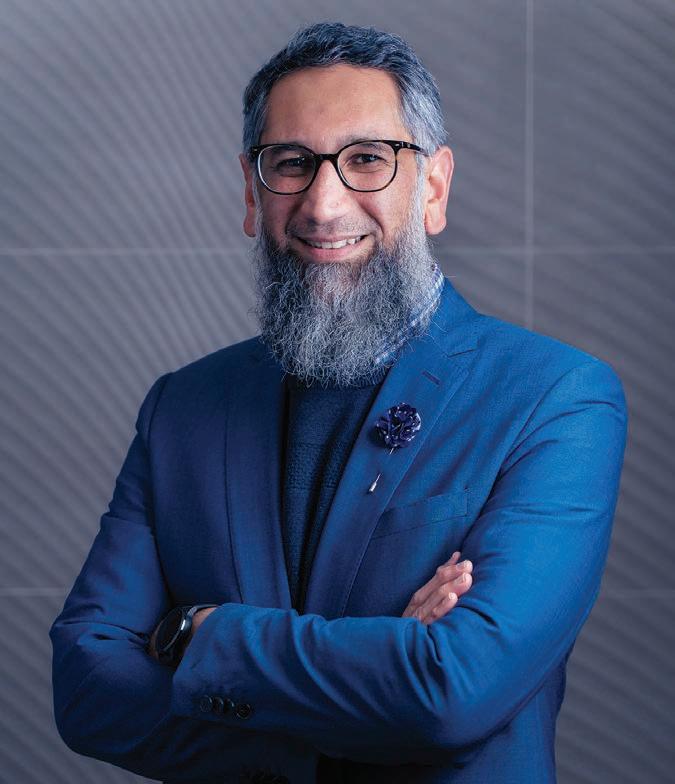
risk and profile, leading to misaligned expectations of care. Patients often anticipate rich, comprehensive care without understanding the limitations of their selected benefit packages. Perceptions of inequity: There is a perception that the private sector serves only about 16% of the population, yet absorbs a disproportionately high share of healthcare funding, infrastructure and skilled professionals.
Concerns over profit motives: Public sector and civil society organisations may view private healthcare as prioritising financial returns over broader population health needs. Policy uncertainty: The NHI debate and litigation have heightened tensions, risking disruption to both
public and private healthcare models, while failing to address systemic inefficiencies in the public sector.
These factors foster a lack of collaboration and hinder the development of effective PPPs.
on healthcare sustainability
South Africa’s extreme inequality contributes to mistrust, which negatively impacts healthcare. Limited availability of advanced care for the working poor, with the majority reliant on the public sector, underscores the urgent need for collaboration and implementation of novel solutions. This situation results in a dependence
on under-resourced public facilities or avoidance of care altogether, ultimately leading to a decline in health outcomes. Specialised services, such as advanced consultations, diagnostic imaging (e.g. MRI and CT scans) and essential treatments like oncology and cardiac care, are often available only to those who can afford private healthcare. For those dependent on the public sector, such services are frequently scarce, geographically inaccessible or plagued by lengthy waiting times. High-quality private healthcare is predominantly located in urban centres, while rural and periurban areas struggle with outdated infrastructure and understaffed clinics. With many specialists practising privately, the public sector faces shortages that hinder comprehensive care. These disparities underscore the necessity for a collaborative, trustdriven approach.
The need for a trust-driven model for PPPs
To bridge the divide and improve access, PPPs must be built on mutual trust, transparency and shared objectives, even amid legal disputes. Trust can be cultivated at operational and local levels, creating collaborative models that grow as policies stabilise. Low-cost medical insurance and employer-backed health plans can significantly improve access for employees in industries lacking medical benefits. Leveraging technology, such as telehealth and AI, can further enhance patient outcomes. This strengthening of primary healthcare through community-based




programmes is essential for bridging existing gaps.
Principles of building trust for long-term success
For PPPs to succeed, both sectors must prioritise collaboration and trust-building measures. Leaders in both sectors must rise above adversarial postures, demonstrating integrity, courage and moral clarity to pursue what is right in the litigation process, while also doing what is right for the nation.
Transparent funding and governance practices will build confidence and trust among stakeholders, enabling improved outcomes. Engaging stakeholders in inclusive dialogue and deci-






sion-making is vital. Policies reflecting both sectors’ needs will cultivate cooperation, while co-creation initiatives ensure equal investment in outcomes.
A sustainable healthcare future for South Africa hinges on dismantling silos and fostering mutual trust through PPPs. These partnerships can address systemic challenges and drive meaningful improvements, thus strengthening infrastructure and expanding affordable health insurance.
Together we can build a resilient, equitable, high-quality healthcare system that sustainably serves all South Africans.



PPPs are key to bridging healthcare gaps and improving equity amid NHI uncertainty.
Trust deficits stem from perceived inequities, profit concerns and policy instability—blocking collaboration.
Inequality limits access to advanced care, especially in rural areas, underscoring the need for inclusive, trust-based solutions.
Sustainable PPPs need transparency, shared goals and inclusive dialogue to strengthen infrastructure and expand access.




























3Sixty Global Solutions Group (3Sixty GSG) is an integrated solutions group offering diverse products and services in the pharmaceutical and medical aid industries.
3Sixty GSG began as a medical aid (health insurance) administration business in South Africa, providing administration and managed care services to Sizwe Hosmed. Today, the group is invested in medical aid administration, biomedicine, nuclear medicine, and cannabis, among other innovations it is pursuing.
Our strategy is rooted in the concept of “Ubuntu Medicine”, derived from an African culture of care. Ubuntu is a Zulu word loosely translated as “being human”—some interpret it as “I am because we are”—a philosophy of human solidarity.








































Amid major healthcare reforms across southern Africa, medical scheme trustees must shift from oversight to leadership –driving equity, sustainability, and member-focused innovation in a rapidly evolving system.
Dr Katlego Mothudi MANAGING DIRECTOR, BOARD OF HEALTHCARE FUNDERS (BHF)
Across southern Africa, the healthcare environment is undergoing profound change, reshaped by policy reforms, shifting demographics and technological disruption. For medical scheme trustees in South Africa, Lesotho, Zimbabwe, Namibia, Botswana, Malawi and Eswatini, these developments demand a renewed focus on their core mandate: to govern with integrity, safeguard financial sustainability and, most importantly, put members first.
As the stewards of medical schemes, trustees must now confront a rapidly evolving reality. This includes the rollout of national health insurance (NHI) frameworks, the critical need to align with universal health coverage (UHC) principles and the balancing act between rising costs and shrinking affordability. In this dynamic environment, the
traditional duties of trustees have expanded, requiring strategic agility, regional insight and a relentless commitment to the health citizen. The need for increased accountability for health outcomes is becoming even more central to a real alliance with the global move towards the progressive realisation of UHC.
A new era of health reform across the region
South Africa’s NHI Act has become the focal point of the country’s move towards healthcare transformation. Although it is currently facing a number of legal challenges launched by several stakeholders, including the BHF, national government has seen fit to move ahead with its implementation. The Act in its current form has far-reaching implications for the medical schemes industry once fully implemented, due to the severe limitations it places on schemes in respect of providing healthcare benefits.
But South Africa is not alone. Across the region, several governments have either announced or begun rolling out NHI schemes aimed at expanding coverage and improving access. Botswana, Eswatini, Zimbabwe and Namibia all recently announced steps in this regard, while the already launched NHI schemes in Ghana, Kenya, Zambia and Rwanda offer lessons when it comes to scheme structuring, achieving sustainability and striking a publicprivate balance.
For trustees, this continental shift towards introducing NHI schemes to progress towards the goal of UHC means they must proactively engage with policy-makers and regulators to advocate for regulations favourable to the preservation or improvement of access to healthcare services, not only for registered medical aid beneficiaries but for health citizens at large. Critically, it requires the strategic positioning of medical schemes within national agendas, ensuring they remain relevant and responsive to evolving member needs.
Global health trends, regional implications
The healthcare landscape is not just changing regionally; global trends are creating shared challenges and opportunities:
Value-based care is displacing traditional volume-driven service models.
Digital health tools, including telemedicine and AI-driven diagnostics, are becoming standard in many countries while there is a growing
concern over cybersecurity risks in digital health infrastructure.
Private health insurance is expanding in many countries due to public health systems struggling with demand, particularly in middleincome countries.
Mental health integration is gaining urgency, with a growing recognition that psychological wellbeing is fundamental to primary care.
Health insurance premiums are rising as a result of increasing global healthcare costs due to aging populations and the impact of chronic diseases.
These pressures resonate in southern Africa, where health systems are contending with rising demand, limited resources and the need to modernise infrastructure. Trustees must assess how these macro trends translate into risks and opportunities for their schemes and members. This requires an expanded view when it comes to the usual basket of risk assessment matrices, to recognise the importance of including those that track health outcomes.
From governance to leadership
Historically, trustees focused on compliance, fiduciary oversight and financial stewardship. Today, their responsibilities are broader and more strategic.
Trustees must now lead on: Member value delivery Scheme sustainability

Advocacy and regulatory compliance
Digital transformation
Benefit design aligned to population health trends.
This evolution requires trustees to build new competencies. It is no longer enough merely to understand actuarial reports and scheme rules. Trustees must be conversant in health system policy, technology integration, disease burden mapping and behavioural health.
In Namibia and Botswana, for example, trustees must navigate emerging public-private partnership (PPP) models. In Zimbabwe, financial governance is especially critical in a volatile economic climate. Malawi and Lesotho face unique demands tied to health worker shortages and donor transitions, requiring trustees to innovate within resource-constrained environments.
In South Africa, trustees must also manage complex transitions related to the phased implementation of the NHI Act, most crucially safeguarding member benefits and scheme sustainability.
Redefining the purpose of medical schemes
Medical schemes must move beyond transactional healthcare funding. Instead, they must serve as vehicles for health promotion, disease prevention and community wellness. Schemes must participate in the promotive, preventative, corrective, rehabilitative and palliative aspects of healthcare service provision, not only to fully adopt UHC, but in response to and anticipation of member needs.
Trustees must lead this shift by:
Embedding preventative health services into core benefit packages. Supporting member wellness education to encourage early detection of disease and lifestyle improvement.
E xpanding access to primary care, particularly for under-served and rural populations.
Compliance & oversight
Financial stewardship
Understanding rules
Reactive
Strategic leadership
Scheme sustainability
Policy, tech & health insight
Proactive, member-centric
Ageing population
Chronic disease
Rising hospital costs
Premium inflation
Trustees should also continue to call for regulatory environments that permit schemes to provide simplified benefits offering essential packages that balance cost with meaningful coverage. This is especially important in the light of rising inflation and unemployment continuing to pressure household finances.
Aging, chronic disease and the cost spiral
According to the United Nations, the global population aged 60 and above is projected to triple by 2050. Elderly members are significantly more likely to develop multiple chronic condi -
Home-based elder care
Chronic disease management
Admin cost consolidation
Innovative benefit designs
tions and have substantially higher healthcare expenditures. According to the data, health expenditure for people with chronic diseases is 3.17 times higher than for those without – over five times higher if they have co-morbidities.
This demographic reality creates a structural risk for all schemes across the region.
These risks include an increase in the number of conditions not covered by prescribed minimum benefit (PMB) legislation and a shifting disease burden, as well as increased expenditure on hospital, long-term and specialist care rather than primary care.
To mitigate these risks, trustees can:
Ensure that reserves and contributions are calibrated to reflect long-term risk exposure. This can be augmented by innovative reserving and investment of schemes’ moneys. Invest in chronic disease management strategies that prevent complications and reduce hospital admissions.
Prioritise home-based and elder care support, which may offer costeffective alternatives to institutional care.
Invest in integrated healthcare delivery models
The growing challenge of rising premiums
Premium inflation remains a concern across the region, often outstripping the consumer price index by a few points. Contribution rates continue to climb, prompting some schemes to merge in a bid to improve efficiency and retain members. Other schemes are trying to find ways to expand while maintaining affordability.
Strategies that trustees can explore include:
Consolidating back-office operations to lower administration costs and improve service efficiency. Engaging in strategic negotiations with healthcare providers to manage and predict costs. Encouraging younger, healthier individuals to join the scheme to balance the risk pool and offset the costs of older, higher-risk members.
Implementing proactive wellness
programmes and preventative care initiatives to reduce longterm health costs.
Keeping members informed about policy changes and cost-saving measures and encouraging the responsible utilisation of benefits. Introducing innovative benefit options with hybridisation of risk.
Reducing out-of-pocket (OOP) burden
Globally, more than 800 million people spend over 10% of their household budgets on healthcare. In the southern African region, many households still face catastrophic OOP spending, particularly when accessing specialist services or chronic medication.
Trustees must address this through: Transparent reporting on OOP costs and benefit restructuring and utilisation.
Educating members on covered services and how to avoid unnecessary expenses.
W here regulatory environments allow, designing low-cost core plans that focus on essential health services, enabling broader participation.
A lternative models of reimbursement in partnership with healthcare providers and restructuring of contracts for value.
Stretching the healthcare rand through innovative benefit designs and introduction of efficiencydiscounted options.
Navigate policy reform, including NHI rollout
Align schemes with universal health coverage (UHC) goals
Balance affordability with rising healthcare costs
Lead digital transformation and data-driven decisions
Ensure scheme sustainability and long-term value
Promote preventative care and wellness benefits
Adapt benefit design to population health needs
Improve access for underserved and informal sectors
Support low-cost, essential benefit options
Manage ageing populations and chronic disease risks
Advocate for public-private collaboration and regulatory clarity
Build trust through transparency and member engagement
Leverage regional insights and cross-border learning
Embrace technology while ensuring digital equity and security
Redefine schemes as partners in holistic healthcare
Strengthen governance with ethical, member-focused leadership
Monitor health outcomes to guide strategy and innovation
A common challenge across the region is low scheme penetration in informal sectors. Irregular incomes, lack of awareness and administrative hurdles contribute to this gap. It is envisaged that this will grow as a challenge as many countries are seeing an increase in the informal income sector and SMMEs.
Trustees can help close the gap by: Designing flexible contribution structures for informal workerswhere regulatory environments allow. South Africa has seen reasonable success with a number of its PMB-exempt schemes that are able to cater for short-term contract and seasonal workers. This adds additional options for discussion in the low-cost benefit options milieu. Partnering with mobile money platforms to collect premiums. Conducting outreach programmes to raise awareness and build trust.
The region is seeing increasing adoption of digital health infrastructure, from electronic health records to AI-powered clinical support. Trustees have a crucial role to play in governing the responsible integration of these tools.
In Namibia and South Africa, telehealth is reducing barriers to access. In Malawi and Zimbabwe, mobile
health tools are supporting maternal and child health programmes. Trustees must ensure:
That digital innovation is deployed equitably and not just for urban or high-income members.
That cybersecurity and data privacy protocols are enforced.
That digital literacy training is provided to members and providers alike.
That schemes implement mobile apps and online platforms for seamless engagement and easy access to services.
That data analytics are utilised to predict trends, assess member needs, manage risks and customise offerings.
That there is collaboration on systems and data collection projects like electronic health records to reduce the overall implementation and running costs of the data tools and projects.
The unique advantage trustees have is their proximity to members, allowing them to influence outcomes in ways policy-makers often cannot.
By maintaining a regional outlook and actively participating in platforms like the BHF, trustees can:
Share best practices and data across borders.
Advocate for regulatory harmonisation where beneficial.
Encourage innovation while preserving member protections.
Demonstrate the essential role that the private health sector must play in both the financing and delivery of healthcare services in countries. Develop and maintain relationships with the policy development environment.
Concluding reflections: putting the member first
The role trustees need to play in southern Africa is no longer just an administrative one. Instead, they have a transformational role to play. Trustees must become champions of health equity, system reform, strategic PPPs and member value. They must lead schemes that are financially sound, digitally enabled and socially responsive.
As the region pursues UHC, trustees can serve as the bridge between evolving national policy and realworld member experience. They can determine whether medical schemes thrive, adapt or fall behind in respect of relevance.
In this moment of transformation, the question for every trustee is this: Are we truly putting members first?
That the answer is ‘yes’ must be visible in every boardroom decision, every benefit plan design and every investment in innovation and communication. Only then can trustees fulfil their mandate and ensure that the medical scheme industry contributes towards building a resilient, inclusive healthcare future for all health citizens.
By Dr Vusi Memela
PRINCIPAL OFFICER,
SISONKE
HEALTH
MEDICAL SCHEME AS ALMALGAMATED WITH LONMIN MEDICAL SCHEME
The healthcare environment in South Africa is undergoing significant changes, necessitating creative strategies to improve member experiences and demonstrate clinically valuable outcome. The theme of the 2025 conference, ‘Collaborating for value: Partnerships transforming the future of healthcare’, resonates deeply with Sisonke Medical Scheme's dedication to value-based integrated care that entails collaborating with supply chain partners within an ageing population. We firmly believe that building strong, strategic partnerships, driven by the effective use of our networks in and out of our five primary healthcare centres (PHCs) will enable us to reimagine the member health journey within the Sibanye Stillwater environment.
These PHCs serve as pivotal touchpoints in our effort to make healthcare more affordable, more accessible,
more responsive and more personal. By aligning resources and expertise across professional sectors, we aim to deliver accessible, high-quality care that not only improves demonstrable health outcomes but also elevates member satisfaction.
Coordinated care represents a patientfocused strategy that fosters service collaboration and communication among all healthcare professionals involved in a patient's clinical intervention to ensure that it is timely, appropriate and demonstrates health
outcomes. This strategy model prioritises the needs and preferences of members/patients with active engagement while providing high-quality and efficient healthcare disease management services. It not only minimises fragmentation but also empowers patients to take control of their health journey, with the understanding that it is a journey, not a destination.
For our members, this translates to:
A streamlined experience: The healthcare system can be intricate. Coordinated care simplifies this journey, facilitating smooth transitions across various healthcare
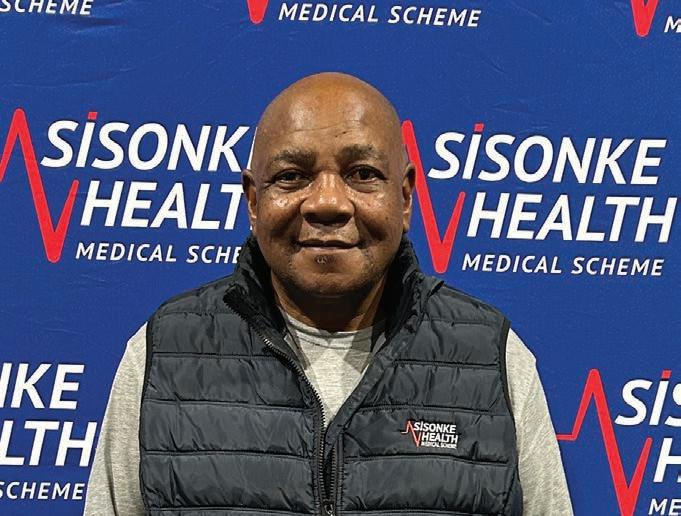
Our integrated care strategy has significantly enhanced the member experience in multiple respects:
Improved health outcomes: Through the provision of comprehensive and continuous care, we have observed demonstrable and notable advances in health outcomes, such as enhanced disease management and lower rates of hospitalisation.
Enhanced member experience: Members benefit from the convenience, accessibility and tailored care provided by our PHCs, fostering strong relationships with care teams that prioritise understanding their individual needs and preferences.
Increased efficiency: The implementation of our electronic health record system and coordinated care initiatives has alleviated administrative tasks, allowing our care teams to concentrate on delivering exceptional care.
environments and providers.
Customised care pathways: Recognising each patient's distinct medical history, current requirements and health objectives is essential. Coordinated care allows for the creation of personalised care plans that effectively meet individual needs.
Enhanced health outcomes: By actively managing acute and chronic illnesses, preventing avoidable hospitalisations and encouraging healthy habits, coordinated care contributes to improved health outcomes for our patients.
Increased patient satisfaction: When patients feel acknowledged, understood and supported throughout their healthcare experience, their overall satisfaction rises significantly.
Sisonke Health Medical Scheme is dedicated to delivering coordinated care through a network of five PHCs, which form the foundation of our journey of care model by offering a variety of services under one roof, tailored to the unique needs of our members.
Primary care services: The PHCs deliver extensive primary care services, encompassing routine examinations, treatment for acute illnesses and immunisations, chronic disease management. A committed team of healthcare professionals, including doctors, dentists, primary healthcare nurses, social workers and physiotherapists with direct
network specialist and hospital referrals, collaborates to provide comprehensive care.
Care coordination: Our PHCs actively coordinate care for members with complex health needs. This includes care navigation, referral management, medication management and health education.
Technology integration: We leverage technology to enhance care coordination and communication.
Preventative care focus: Our PHCs prioritise preventative care through health screenings, vaccination initiatives, education, counselling and wellness programmes aimed at fostering healthy lifestyles.
To strengthen our integrated care approach, we proactively pursue collaborations with a range of stakeholders, such as:
Healthcare providers: Collaborating with specialists and hospitals to guarantee seamless care for our members.
Technology companies: Utilising digital health innovations to enhance service provision and member interaction.
Community organisations: Working alongside local organisations to tackle social determinants of health and facilitate better access to care.
These collaborations are essential in building a resilient healthcare framework that supports our members throughout their healthcare experiences.












References: 1. Romo, L., et al. (2024). A Qualitative Model of Weight Cycling. Qualitative Health Research. doi.org/10.1177/10497323231221666. 2. Tucker S et al. The Most Undertreated Chronic Disease: Addressing. Obesity in Primary Care Settings. Curr Obes Rep. 2021 Sep;10(3):396-408. doi: 10.1007/s13679-021-00444-y. Epub 2021 Jul 23. PMID: 34297343; PMCID: PMC8300078. People portrayed are actors. Novo Nordisk (Pty) Ltd. Reg. No.: 1959/000833/07. 90 Grayston Drive, Sandown, Sandton, 2031, Gauteng, South Africa. Tel: (011) 202 0500. Fax: (011) 807 7989. www.novonordisk.com. ZA25OB00111 April 2025. While it’s always better to eat healthy, yo-yo dieting is far from ideal1. Understanding that obesity is a chronic disease2 can help explain why dieting might not provide a long-lasting solution. And realising it’s not all about willpower might be a relief in itself. Find more information at www.truthaboutweight.global/za


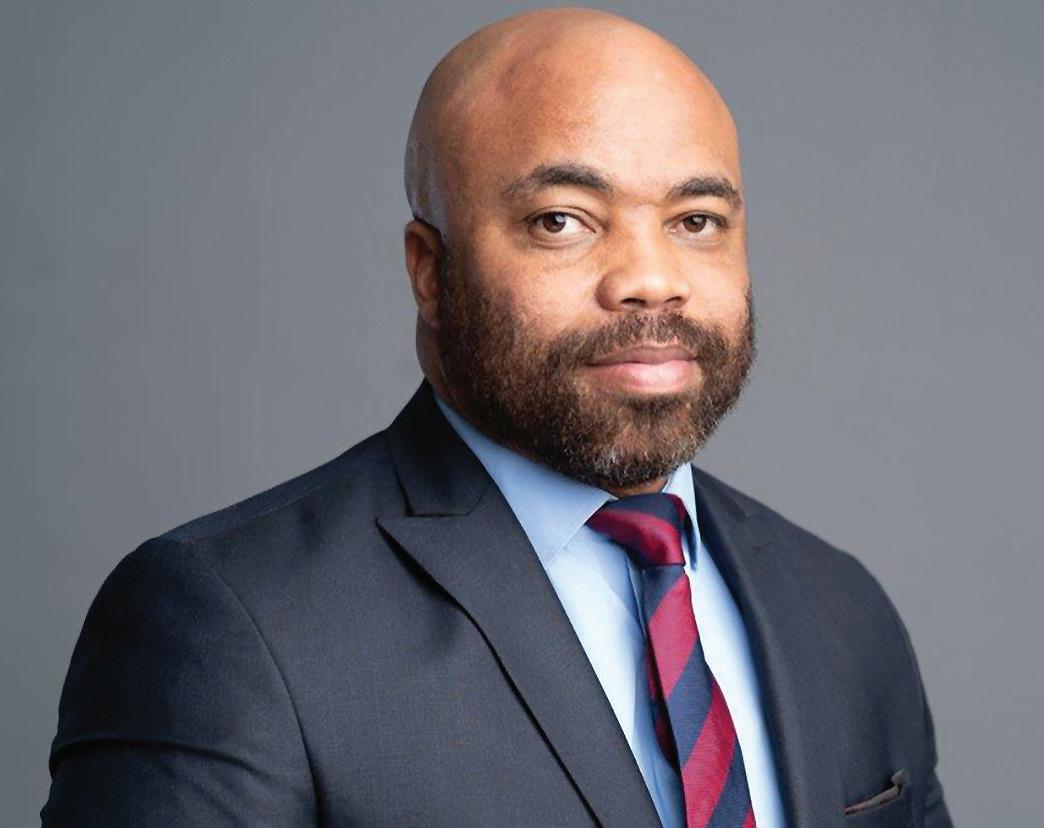
Employers and medical schemes are joining forces to shift healthcare from reactive to preventive— improving employee wellbeing, reducing costs, and driving long-term productivity.
Dr Themba Hadebe CLINICAL AND MANAGED CARE EXECUTIVE FOR BONITAS MEDICAL SCHEME
In an era marked by rapid technological advancement, shifting disease burdens and evolving workforce dynamics, healthcare reform is undergoing a transformative shift. No longer confined to hospitals and clinics, health innovation is reaching into the workplace, catalysed by rising consumer expectations, a grow-
ing emphasis on value-driven care and an urgent need for sustainable cost management. At the heart of this transformation lies a powerful engine: multi-stakeholder partnerships that unite employers, medical schemes, healthcare providers and public entities like the Compensation Fund in pursuit of shared value.
Employee health and productivity have emerged as critical levers for organisational resilience and national economic
performance. Major employer groups and healthcare funders are increasingly recognising that a healthy workforce is not just a moral imperative but a strategic asset. Chronic diseases, mental health disorders and workplace injuries remain significant cost drivers, but when addressed through co-ordinated and proactive interventions, they offer opportunities for measurable impact.
Collaborations between employers and medical schemes are proving to be especially influential. Through
integrated care models and valuebased benefit designs, these partnerships are shifting the focus from reactive, episodic care to preventive, holistic well-being. For instance, targeted chronic disease management programmes — co-developed by funders and employer wellness teams — are enabling early diagnosis, personalised interventions and digital monitoring, reducing hospital admissions and enhancing treatment adherence.
One of the most scalable solutions in this evolving landscape is the deployment of integrated care models. These models align clinical pathways across general practitioners, specialists, allied health professionals and workplace health services to ensure seamless care coordination. By sharing health data securely and optimising care transitions, such systems reduce duplication of services, prevent medical errors and improve patient outcomes.
South African examples include managed care initiatives led by large medical schemes that integrate occupational health services with chronic disease programmes. By embedding care teams directly into employer environments — often via onsite or virtual clinics — these models provide immediate access to preventive screenings, mental health support and rehabilitation services. Employees benefit from reduced absenteeism, while employers gain through lower medical claims and improved productivity.
Another pillar of successful collaboration is the design of benefits that align financial incentives with health outcomes. Innovative schemes now offer tiered benefits that reward healthy behaviours — such as regular screening attendance, medication adherence or participation in wellness activities. This approach empowers employees to take ownership of their health, while simultaneously controlling costs for funders and employers.
In some models, co-payments are waived for high-value services, such as diabetes education or physiotherapy for musculoskeletal conditions, which are common causes of absenteeism. This benefit design strategy not only promotes utilisation of effective care but also enhances member satisfaction and retention.
Public entities like the Compensation Fund and provincial health departments are increasingly collaborating with private funders and employer groups to address occupational health risks and promote return-to-work programmes. These partnerships are particularly critical in high-risk industries such as mining, construction and logistics, where workplace injuries and disease burden can be significant.
By pooling data and aligning care protocols, these initiatives ensure injured workers receive timely, appro -
Employer-medical scheme partnerships are reshaping healthcare by focusing on prevention, early detection, and coordinated care delivery.
Integrated care models align GPs, specialists, allied health professionals, and workplace services to reduce duplication, enhance outcomes, and streamline care pathways.
Value-based benefit design rewards healthy behaviours like screening and medication adherence, helping control costs while improving employee engagement and satisfaction.
Onsite and virtual clinics embedded in workplaces improve access to care, reduce absenteeism, and support chronic disease management.
Public-private partnerships with entities like the Compensation Fund promote return-to-work programmes and support in high-risk sectors.
Mental health support and health literacy campaigns are reducing stigma, improving morale, and boosting retention.
Multi-stakeholder ecosystems are emerging as the foundation for a more sustainable, person-centred, and productive workforce health system.
priate care and are reintegrated into the workforce with adequate support. Rehabilitation, upskilling and workplace accommodations are all part of a more holistic recovery pathway, reducing long-term disability and supporting economic reintegration.
The human element of these reforms cannot be overstated. When employees feel supported in their health journeys — through access to care, health education and mental wellness programmes — they are more engaged, loyal and productive. This has downstream benefits for talent acquisition and retention, especially in a competitive labour market.
Moreover, the stigma surrounding mental health and chronic conditions is being dismantled through workplace health literacy campaigns and peer support programmes, often initiated through joint efforts by HR teams and healthcare providers. This cultural shift toward openness and support enhances workplace cohesion and resilience.
The future of employee wellness lies in collaborative eco-systems that transcend organisational boundaries. Medical schemes bring data and care management expertise. Employers offer access and engagement chan -
nels. Healthcare providers deliver clinical excellence. And public institutions provide governance, policy alignment and equity frameworks.
Together, these stakeholders are co-creating scalable, adaptable systems that deliver value: not just reduced costs, but improved lives. As these partnerships deepen, they offer a compelling blueprint for a reimagined workforce health paradigm, one that is preventive, person-centred and productivity-enhancing.
In the long run, investing in employee health is no longer a discretionary benefit. It is a strategic imperative — and one best addressed through collective action.



Healthcare stands at a crucial turning point, and the moment to seize this transformation is now. Staying ahead demands more than adaptation— it requires bold vision, fearless innovation, and a partner who challenges conventional thinkingUniversal Healthcare is that partner. With a global impact covering over 10.6 million lives, we’re not just advancing healthcare, we’re revolutionising its future.
Ask yourself: Why tolerate mediocrity when you can embrace excellence? As industry disruptors, we don’t simply adapt—we accelerate progress, engineering game-changing healthcare strategies that transcend expectations and redefine possibilities.
Envision a healthcare partner that drives trends instead of following them. Universal Healthcare powers over 30 meticulously crafted health insurance plans, delivering unrivalled service
to blue-chip businesses and medical schemes with relentless precision and excellence. Our commitment to catalysing meaningful change isn’t just a promise; it’s a proven reality backed by our leading market position.
At Universal Healthcare, we fuse cutting-edge technology, expert administration, and strategic healthcare insights to overcome the boundaries of what’s possible. Our laser-focused solutions transcend basic efficiency while delivering sustainable, powerful health outcomes for our partners.
We consistently deliver exceptional value through our streamlined administrative services, comprehensive care management programmes, and groundbreaking telemedicine solutions like uConsultTM and uChat. Our mediBucks services maximise financial benefits, ensuring your resources are amplified.
Our commitment extends further. With Universal Corporate Wellness, we engineer bespoke health and wellness services to tackle the unique needs of employers, their employees and medical schemes. Our actuarial services provide datapowered insights, equipping you with knowledge that drives decisive action.
We challenge you to think bigger, innovate bolder, and conquer the ordinary. Universal Healthcare isn’t just a service provider; we are your ally in driving monumental, lasting transformation. The future of healthcare is evolving, and it’s unfolding right now. Join our force on this transformative journey and discover a world where healthcare truly becomes one with innovation.
Strategic healthcare partnerships are driving innovation, improving quality, and advancing access in support of sustainable, universal health coverage.
By Dr Vuyo Gqola CHIEF OPERATIONS OFFICER, GEMS
The Government Employees Medical Scheme (GEMS) was established in 2005 to meet the healthcare needs of government employees and their families.
GEMS is now the largest closed medical scheme in South Africa and provides cover to over 2.3 million beneficiaries. Approximately 500 000 new beneficiaries have been added over the past five years.
GEMS has grown by delivering an exceptional value proposition to its members. Member contributions are lower than those of competing medical schemes, while benefit entitlements are more comprehensive. This has only been made possible through partnerships with healthcare providers and other key stakeholders throughout the healthcare industry.
These partnerships are multifaceted and extend to matters such as value-based care models, innovative care delivery mechanisms and efforts to better understand and

manage the quality of care. Examples of the latter include GEMS’ partnerships with Health Quality Assessment (HQA) and the Board of Healthcare Funders (BHF) in the context of ‘effective coverage’.
HQA is an independent organisation that measures and reports on the quality of healthcare services in the South African private healthcare sector. It produces both industry-level and scheme-specific reports, which allow participating schemes to discern how the quality of care delivered to their members compares with industry norms.
Comparative benchmarking allows schemes to identify areas for improvement and to test the impact of interventions. Benchmarking has contributed to GEMS introducing enhanced care plans aimed at improving the management of HIV, including enhanced benefits such as
those relating to CD4 count and viral load tests, as shown in Figure 1.
Further interventions over time have contributed to GEMS outperforming the HQA benchmark in the context of chronic disease management.
Member organisations that participate in HQA come from multiple sectors within the healthcare system. They include medical schemes, managed care organisations, healthcare practitioner societies and hospital groups. There is extensive horizonal and vertical competition between these member organisations.
Nonetheless, parties have been able to set aside such competitive dynamics in the interest of creating a more sustainable and betterquality healthcare system by working
together to capacitate the HQA. This serves as a model for future collaboration as South Africa moves toward the introduction of universal health coverage.
GEMS and its representatives participate in the HQA board and various technical panels, which inform HQA's work. Member organisations submit extensive data to HQA, which form the basis for reporting and benchmarking.
Based on the World Health Organization’s effective coverage framework, the BHF has developed a system for medical schemes to assess the effectiveness of their benefit offerings. Effective coverage is a systematic approach that evaluates the accessibility and quality of clinically appropriate healthcare services and their
impact on health outcomes (Jannati et al, 2018).
The effective coverage measurement framework encapsulates a combination of process and surrogate outcome measures. These measures extend to maternal care, paediatric care, non-communicable diseases (diabetes, hypertension and mental health conditions), infectious diseases (HIV, pneumonia and tuberculosis) and cervical and breast cancer.
The effective coverage measurement framework empowers medical schemes to assess care-seeking behaviours and the effectiveness of clinical interventions in response thereto. Such measurements enable medical schemes to make evidencebased decisions on how best to direct their financial resources to maximise healthcare outcomes.
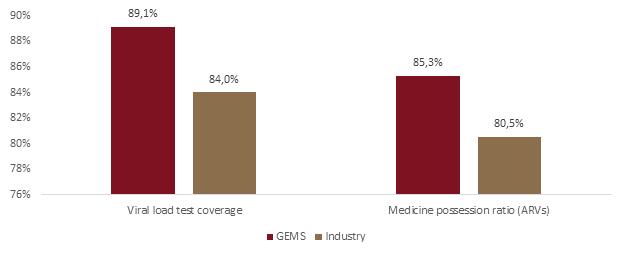
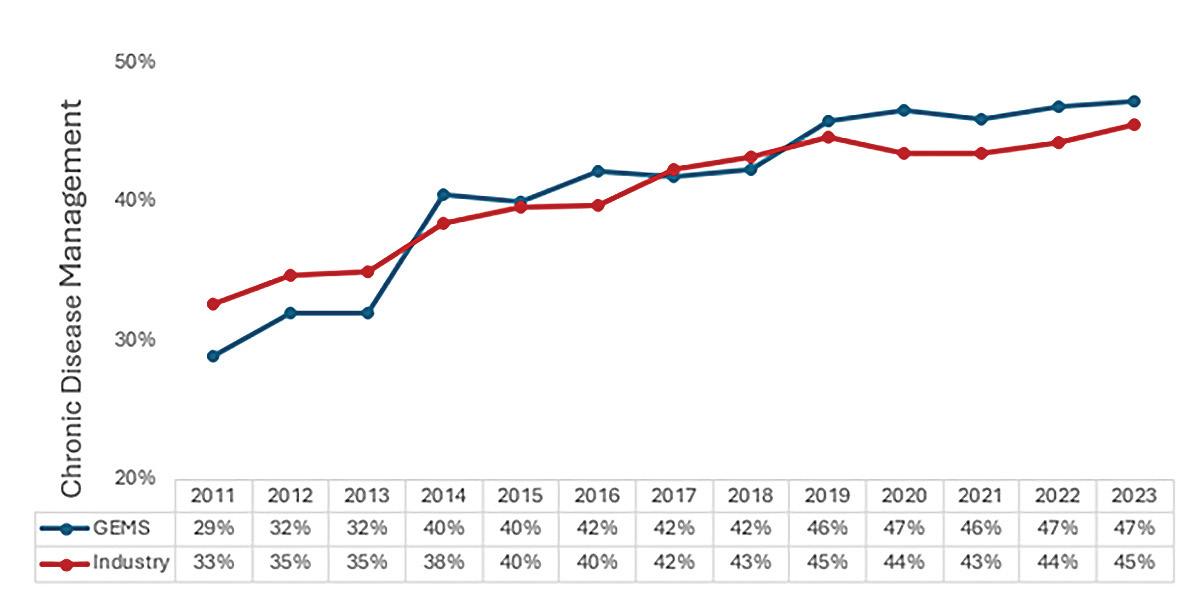
Effective coverage measurements have played a significant role in shaping GEMS’ product development. For instance, data on diabetic members and the duration of their controlled HbA1C levels informed the decision to fund continuous glucose monitors and insulin pumps for select type 1 diabetics.
This measurement process is the result of collaboration between the BHF and medical schemes like GEMS,
pooling their expertise to create a standardised tool for the healthcare industry.
Successful initiatives – such as those involving the BHF, HQA, and the Effective Coverage Measurement Framework – highlight how strategic partnerships can lead to innovative healthcare solutions. However, broader collaboration, including public-private partnerships, has progressed slowly and now demands
urgent attention to ensure sustainable, universal healthcare coverage. As Abdul et al (2024) note, such partnerships offer a powerful opportunity to foster innovation and drive transformative change in the health sector.
Special thanks to Ms Nonkqubela Mxoli, Mr Rammoelo Ditsoane, Mr Craig Getz and Mr Jonah Ramushu.
Abdul S, Adeghe EP, Adegoke BO, Adegoke AA, Udedeh EH. (2024). Public-private partnerships in health sector innovation: Lessons from around the world. Magna Scientia Advanced Biology and Pharmacy; 12(01): 45-59. DOI: https://doi.org/10.30574/ msabp.2024.12.1.0032
Jannati A, Sadeghi V, Imani A, Saadati M. (2018). Effective coverage as a new approach to health system performance assessment: a scoping review. BMC Health Serv Res; 18: 886. https://doi.org/10.1186/s12913-018-3692-7

Essential medicine access in South Africa is limited by cost, supply, and regulation –making strategic partnerships key to closing the health equity gap.
By Martin Magwaza GROUP CHIEF SCIENTIST, 3SIXTY GLOBAL SOLUTIONS
Access to essential medicines remains a significant challenge in the developing world. Approximately one-third of the global population lacks access to necessary medicines, with the poorest countries carrying the highest burden of disease. Healthcare in South Africa has seen significant advancements over the years, yet deep inequalities persist, particularly in access to essential medicines. While the country has a robust
pharmaceutical industry and a wellestablished public health system, factors such as High drug prices, Limited infrastructure, Intellectual Property barriers, supply chain disruptions, and regulatory complexities continue to limit medicine accessibility, especially for lower-income populations. The advent of the COVID-19 pandemic of 2020 demonstrated most strongly, the need for a more deliberate and robust strategy for a reliable partnership model for sustainable access to medicines. The systemic challenges of health inequity limit our nation’s ability to attain the Sustainable Development Goal (SDG) of Good Health & Wellbeing.
While major strides have been made in improving the nation's health outcomes through the achievement of milestones such as increasing life expectancy, improving HIV/AIDS, TB, and STI control, reducing maternal, infant, and child mortality, much still needs to be done to achieve the SDG of Health and Wellbeing. Equitable access to medicines remains a critical component towards bridging the gap and transforming healthcare.
Advancement of the healthcare agenda requires innovative partnerships that leverage the strengths of various stakeholders to create sustainable solutions. 3Sixty Global Solutions Group (“3Sixty GSG”), a prominent South African healthcare conglomerate, exemplifies this approach through strategic collaborations aimed at enhancing equitable access to medicines.
Founded with a vision to transform healthcare delivery, 3Sixty GSG has expanded its portfolio to include subsidiaries specializing in Biopharmaceuticals, Targeted Radiotherapy, Digital Health and Medical Devices. This diversified approach enables the group to address multiple facets of healthcare, from research and development to patient care.
3Sixty GSG has responded to the call for increased private sector participation in transforming healthcare. Its subsidiaries play pivotal roles in enhancing pharmaceutical accessibility. Subsidiaries to note are 3Sixty Health, The Centre for Diabetes and Endocrinology, 3Sixty Biopharmaceuticals, 3Sixty Biomedicine, 3Sixty Herbal Health, 3Sixty Nuclear Medicine and Cape Sativa. These subsidiaries are making a meaningful contribution through health technology innovation.
3Sixty GSG’s approach to bridging the gap in medicine access involves several key strategies:
By partnering with government entities and non-profit organizations, 3Sixty GSG contributes to policy development and implementation aimed at reducing medicine costs and improving distribution networks. These collaborations facilitate the creation of frameworks that support affordable healthcare solutions for underserved populations.










Partnerwithaleader ininnovative healthcare administration.





































































































































Wedelivertailored solutionsforopen, restrictedandemployersupportingclients worldwidewithourcrossbordercapabilities.Our digitalsolutionsenhance efficiency,reducefraud andprovideasmarter memberexperience.
We deliver tailored solutions for open, restricted and employerbased schemes, supporting clients worldwide with our crossborder capabilities. Our digital solutions enhance efficiency, reduce fraud and provide a smarter member experience






















































Partnerwithustounlock thefullpotentialofyour thcareadministration.
Partner with us to unlock the full potential of your healthcare administration











































One-third of the global population lacks access to essential medicines.
South Africa faces persistent barriers including high drug prices and supply chain challenges.
Strategic pharmaceutical partnerships are critical to advancing equitable healthcare.
3Sixty Global Solutions Group is addressing access through innovation and collaboration.
The group invests in local manufacturing, R&D, and public-private partnerships.
Sustainable access to medicines is essential to achieving health equity and national development goals.
Recognizing the importance of selfreliance, 3Sixty GSG invests in local pharmaceutical manufacturing capabilities. This investment will not only reduce dependency on imports but will also create quality jobs and contribute to stimulating the local economy and a more sustainable healthcare system.
Research and evelopment (R&D) Initiatives
Through its subsidiaries, 3Sixty GSG prioritizes R&D to develop innovative treatments tailored to the specific health challenges faced by South Africans. 3Sixty leverages its local and global partner network to develop solutions based on platform technologies such as nano-technology, next generation sequencing (NGS) and Plant Molecular farming. By focusing on locally prevalent diseases, the group ensures that new medicines
are relevant and accessible to the communities that need them most.
Despite significant progress, challenges persist in achieving equitable access to medicines. Regulatory hurdles, funding constraints, infrastructural limitations and Intellectual Property Restrictions continue to pose obstacles. 3Sixty GSG remains committed to addressing these challenges by advocating for streamlined regulatory processes, seeking sustainable funding models, and investing in infrastructure development.
A nation's health is crucial because a healthy population drives economic growth, reduces healthcare burdens, and enhances national security. A healthy populace contributes to a more productive workforce, leading to greater economic output.
3Sixty Global Solutions Group exemplifies how strategic partnerships and innovative approaches can transform healthcare delivery in South Africa.
By integrating various subsidiaries and leveraging collaborations, 3Sixty GSG is actively bridging the gap in pharmaceutical access, ensuring that more South Africans receive the medicines they need. As the group continues to expand its reach and capabilities, it stands as a beacon of progress in the quest for equitable healthcare.
Uniting Voices. Driving Impact. Shaping Healthcare.
The Board of Healthcare Funders (BHF) is a not-for-profit industry body representing medical schemes, administrators, and managed care organisations across seven countries in Southern Africa-namely Malawi, Botswana, Namibia, Lesotho, Eswatini, Zimbabwe, and South Africa. We serve over 6.5 million beneficiaries, advocating for the delivery of accessible, affordable, and high-quality healthcare. Our mission is to advance sustainable healthcare systems by advocating for policies that promote access, equity, and innovation across the region.
A member-centric healthcare system that is affordable and accessible to every health citizen in the region.
Being a part of BHF gives you access to a powerful industry network, a platform to shape healthcare policy, and tools to support the sustainability of your business. Our members benefit from insights, influence, and a collective voice in driving healthcare transformation.

Advocacy: Representing and advancing shared industry interests in healthcare policy and reform
Conference Discounts:
Enjoy up to 30% off on BHF Annual Conference registration

Training: Trustee Development Programme & Governance Training for trustees and scheme executives
Advisory Support: Legal, actuarial, benefit design, and reimbursement model support
Recognition & Thought Leadership:
Titanium Awards, BHF360º Magazine, Southern Africa
Peer-Reviewed Health Journal Let’s Build the Future of Healthcare – Together







Industry Cohesion:
Access exclusive forums, regional seminars, and collaborative spaces for reform
Tools and resources to support trustees and Principal Officers in their decision making processes:
•Benchmarking Dashboards
•SADC Tariff Comparisons
•PCNS Provider Data & Analytics
•Effective Coverage Assessment
•Fraud, Waste & Abuse (FWA) Reporting Portal
Not yet a BHF member?
We invite you to join our growing community of healthcare funders driving meaningful change across Southern Africa. To learn more about our work, initiatives, and membership benefits, visit www.bhfglobal.com or connect with our team:
Zola Mtshiya
Head of Stakeholder Relations and Business Development

065 819 2225 | zolam@bhfglobal.com
Camille Shamburg Project Specialist
082 861 4945 | camilles@bhfglobal.com

By Charlton Murove HEAD OF RESEARCH, BHF
Healthcare fraud, waste and abuse (FWA) continues to be an unwanted drain on healthcare resources across healthcare systems, both locally and globally. This problem results in a substantial depletion of essential financial resources, negatively impacting patients, with losses seemingly escalating each year. In the southern African region, the challenge of assessing the impact of FWA is exacerbated by a lack of comprehensive reports detailing annual losses.
The best available data on annual losses come from countries with more organised frameworks and reporting systems. An example is the National Health Care Anti-Fraud Association in the United States, which estimates that healthcare fraud accounts for between 3% and 15% of total healthcare expenditure.
The absence of industry-wide reports on FWA often results in insufficient
Healthcare fraud, waste, and abuse drain vital resources. Tackling it demands unity, urgency, and accountability across the entire healthcare ecosystem.
resources being allocated to address the problem. Additionally, there is no universally accepted definition of FWA, which contributes to the inadequacy of response strategies. Moreover, efforts to combat FWA are often fragmented among healthcare funders. When healthcare fraudsters are identified, pursuing legal action against them can be incredibly challenging and time-consuming.
There must be a consensus on the definition of FWA, with recent discussions highlighting the inclusion of ‘error’ in the definition, i.e. FWAE. Achieving a common understanding of FWAE will enable the development

•Intentionto deceivetogain financially
•e.g. submittingfalseclaims
•Gamingthesystemto gain financially
•e.g. unbundlingbillingcodes
•Doingmorethan necessaryfor thepatient
•e.g.unnecessary hospitaladmissions
of standardised investigation procedures. Figure 1 explains what FWA is and provides examples of each.
Current evidence suggests that we are not winning the fight against FWAE. Therefore, we must constantly review our strategies and try new interventions until we find the winning formulae. It is unwise to keep trying the same thing while hoping for different results.
To effectively tackle healthcare FWAE, a systematic and collaborative industry-wide approach is essential. This is especially true in low-resource settings such as ours. Developed countries have more centralised databases and electronic health records, yet they still struggle with healthcare FWAE.
Collaboration among industry stakeholders is crucial to effectively identify instances of FWAE. This includes joint efforts in investigating cases and sharing data to stop occurrences. Once these are identified and investi -
gated it’s important that gaps leading to such losses are closed by funders. We must learn from our mistakes.
Another critical area for collaboration is consequence management. Society needs to be more informed about FWAE, its definition, impact and how it occurs. If medical scheme beneficiaries and citizens are more informed, they will become important stakeholders in fighting FWAE though channels like whistleblowing. Regulators and law enforcement agencies should also have a clear understanding of their roles in combating FWAE, which can be most effectively achieved through joint efforts by broader society.
It is also vital to produce industry reports on financial losses due to FWAE, which would amplify awareness and enhance response strategies. Healthcare funders should increase their monitoring of FWAE initiatives and implement measures for mitigation.



In South Africa, recent legislative changes to the Prevention and Combating of Corrupt Activities Act (PRECCA) place additional responsibilities on boards of trustees (BOTs) and principal officers (POs) in the fight against FWAE. These changes hold BOTs and POs accountable for any benefits gained from corrupt activities and require them to establish measures within their organisations to prevent corruption; failure would result in potential criminal prosecution.
The BHF recently launched the Collaboration Hub to better equip the industry to address FWAE challenges. Participants in the Collaboration Hub will be expected to share data and information on FWAE trends and collaborate on investigations where appropriate. The hub will also be tasked with producing annual reports on FWAE trends to raise awareness of the financial burden it places on the healthcare funding industry.
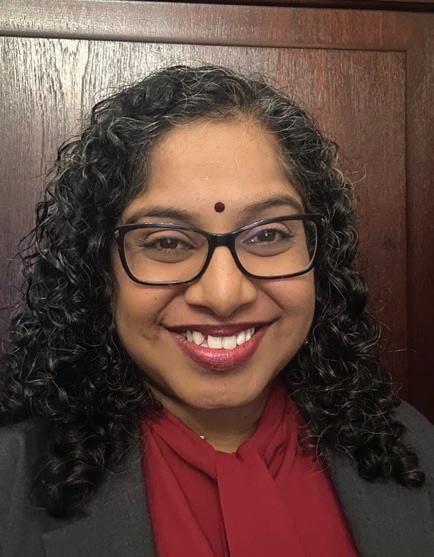
By Dr Urvashi Pather Advanced Specialist: Specialist Strategy, Medscheme
The South African healthcare landscape in 2025 is anything but predictable. With significant changes unfolding daily, stakeholders across the sector are navigating complex challenges, from policy shifts to economic pressures.
The implementation of the national health insurance (NHI) system looms, adding uncertainty to an already evolving industry. At the same time, the Government of National Unity is making bold moves and young doctors struggle to find employment, while hospitals remain understaffed and South Africans face a rising cost of living that impacts their ability to access and afford healthcare.
Globally, decisions made outside our borders are also affecting us. As an example, the United States’ withdrawal from the World Health Organization (WHO) and its funding cuts
In a rapidly shifting healthcare landscape, strategic partnerships are essential to overcoming uncertainty, driving innovation, and ensuring access to sustainable, patient-centred care.
for global healthcare programmes which have had serious implications for South Africa’s health initiatives, particularly in the public sector.
In times of such flux, the need for strong, innovative partnerships in healthcare has never been greater. While forward-thinking collaboration is essential, it’s equally important to reflect on past partnerships, drawing valuable lessons that can shape sustainable, effective healthcare alliances.
From my experience, successful healthcare partnerships — whether large-scale or small — must be built
on clear strategic objectives, following a thorough planning, strategy-setting and gap analysis process. Below are key considerations when evaluating potential partners, whether these are public-private or private-private partnerships or simply partnerships between smaller entities:
1. Synergies: Aligning strengths for greater impact
Identify partners who can complement your expertise and fill knowledge gaps.
Ensure their values and market positioning align with yours.
A ssess whether they can enhance your efforts and help realise your value proposition.
Check for alignment with your strategic objectives.
2. Culture: A shared commitment to quality care
Evaluate if the patient or member experience is a core priority for them.
A ssess their culture of accountability — do they follow through on commitments and prioritise delivery?
Consider their approach to innovation. Are they forward-thinking, or do they adopt a fast-follower model? Are they conservative in new models? Review which approach best aligns with your needs. Is there a focus on ethics?
3. Outcomes: A focus on value-based care
Look for partners committed to holistic and specifically measurable outcomes.
Ensure that they prioritise value-based care, balancing financial, clinical and patient experience outcomes as required for the initiative.
Determine whether they already have some measurable results to indicate a proven track record.
4. Technology and digital health as an enabler
Evaluate how they have embraced and utilise digital health solutions.
Review their data and analytics capabilities. If developed enough, do they utilise this effectively for data-driven decision-making?
5. Sustainability and long-term impact
Is this partnership financially sustainable, based on the financial standing and alignment of both entities?
Are there appropriate registrations in place and regulatory compliance?
In conclusion, as South Africa’s healthcare sector navigates significant transformation, the power of strong, strategic partnerships cannot be overstated. Whether through digital health innovations or publicprivate partnerships, effective partnerships have the potential to reshape the industry for the better.
Success lies in aligning with partners who share a vision for sustainable, patient-centric and value-based care. By prioritising synergies, cultural fit, measurable outcomes and long-term impact, healthcare stakeholders can build collaborations that endure beyond policy shifts and economic challenges. Now more than ever, collaboration is not just an option — it is a necessity to ensure sustainable, adaptable and robust healthcare initiatives to better the health of all.
Since 2013, Medscheme has partnered with Improved Clinical Pathway Services (ICPS) and JointCare – leading suppliers of Arthroplasty Global Fee Programmes. When global fees were new to the funder space, these partners helped shape, refine, and scale their impact.
The programmes optimise patient care through structured pathways that include:
Pre-operative optimisation with the surgeon,
Managing authorisations, Coordinating reimbursements, Monitoring and reporting outcomes.
National provider network serving members across multiple schemes.
Excellent clinical results: near-zero specialised bed use, low complication and readmission rates, and a 2.5-day average stay.
Financial efficiency, with carve-outs below 2%.
Predictable costs and savings for schemes. 94% of surveyed members would recommend the service (PREMS).
The partnership has introduced same-day procedures, a revised global fee model, and expanded into day facilities. A unified provider network further streamlines care. With a solid track record, this collaboration is now supporting the development of new valuebased care models in other clinical areas.
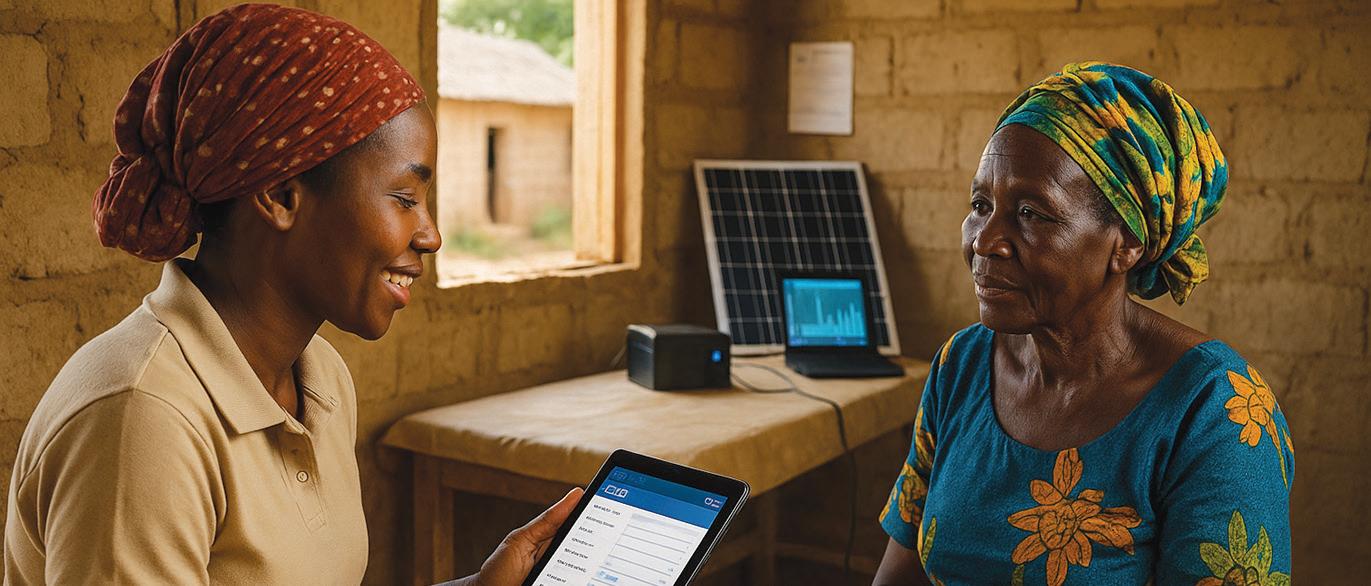
By Dr Raythaan Addinall CMO, VIDEOMED
In many parts of sub-Saharan Africa, structural barriers have long impeded access to basic healthcare. From medicine stockouts and fragmented patient data to affordability issues and a shortage of healthcare infrastructure, millions of Africans face daily challenges in getting the care they need. But the tide is turning.
Across the continent, HealthTech startups are stepping into this gap, using digital innovation to bridge longstanding divides.
These innovative players are demonstrating how strategic partnerships and technology-driven ecosystems can unlock new pathways to care.
Together, these companies are not just digitising healthcare — they are reshaping the very foundations of health access across the region.
While global health indicators are improving in many parts of the world, access to affordable, quality healthcare in Africa remains a significant challenge:
HealthTech startups across Africa are bridging gaps in access, affordability, and quality of care by building digital solutions rooted in strong, local partnerships — transforming healthcare from the ground up.
80% of Africans pay for healthcare out-of-pocket
Doctor-to-patient ratios fall well below WHO recommendations
Essential medications are often out of stock or unaffordable
Medical records are scattered or paper-based
Insurance penetration is low, with minimal digital integration.
These challenges are compounded by rural-urban disparities, rising chronic disease burdens and economic instability. HealthTech startups are tackling these issues head-on, not by working in silos, but by building networks of partnerships that deliver sustainable and scalable solutions.
Some startups are transforming the pharmaceutical supply chain across multiple African countries by leveraging data, logistics and finance to make medication more accessible and affordable.
At the heart of many digital health models is an extensive partnership network that spans: Retail pharmacies
Hospitals and clinics
Pharmaceutical manufacturers Governments and NGOs.
These partnerships have enabled innovative solutions like:
1. Vendor-managed inventories: By directly managing stock on behalf of pharmacies and hospitals, startups reduce the risk of stockouts, mini-
mise expired drugs and optimise purchasing. Pharmacies don’t need to tie up capital in inventory, allowing them to focus on patient care.
2. Digital pharmacy franchises: Franchising models transform small, independently owned pharmacies into branded, technology-enabled outlets. These pharmacies benefit from:
Centralised procurement
Standardised pricing
Digital point-of-sale systems
Access to financing and training.
This ensures consistency in drug availability and quality while expanding reach into underserved communities.
3. Government collaborations: Many startups work closely with governments to strengthen national drug procurement systems. By using startup technology and infrastructure, public health systems gain transparency, efficiency and cost savings.
4. Patient financing and health savings: Through fintech partnerships, some startups enable patients to access medications on credit or through instalment plans — breaking down affordability barriers, especially for chronic disease management.
While some startups work to solve the medication access problem, others are tackling critical gaps in clinical data and hospital management.
Structural barriers such as medicine stockouts, fragmented records, low insurance penetration, and affordability continue to hinder healthcare access in many African regions.
HealthTech startups are tackling these challenges through digital innovation and strategic partnerships with governments, pharmacies, clinics, and NGOs.
Digitised pharmaceutical supply chains are reducing stockouts, improving inventory management, and lowering costs through models like vendormanaged inventories and pharmacy franchises.
EMR and hospital management systems are enabling remote and small clinics to modernise operations, improve continuity of care, and contribute to national health data systems.
Collaborations with public health systems are helping digitise hospital networks, streamline procurement, and improve data for decision-making.
Fintech integration is expanding access through patient financing tools and savings plans, making chronic disease care more affordable.
Interoperable systems are boosting trust, accelerating insurance claims, and improving healthcare quality and efficiency.
These startups offer a scalable, partnership-driven model that strengthens existing infrastructure while advancing progress toward universal health coverage across Africa.
In many African countries, healthcare providers still rely on paper-based records, leading to inefficiencies, misdiagnoses, poor data collection and disjointed patient journeys. Startups are changing that by building electronic medical record (EMR) and hospital management platforms.
These digital suites typically include: EMR and practice management software
Billing and insurance claim modules
Telemedicine platforms
Public health data analytics tools.
By offering these tools via cloud and mobile devices, startups enable even small clinics to digitise their operations, improve care coordination and generate actionable data.
The approach to scaling is deeply rooted in partnerships, including:
1. Public sector collaborations: In several countries, startups have partnered with ministries of health

to digitise entire hospital systems. These efforts improve data-driven decision-making and streamline resource allocation.
2. Private clinics and hospital groups: By integrating EMRs across private hospital chains, startups are creating interoperable networks where patient records can move securely across facilities, ensuring continuity of care and better outcomes.
3. Insurance and health maintenance organisations (HMOs): Startups integrate with multiple HMOs to automate claims processing and increase transparency in medical billing. This builds trust and accelerates reimbursements for providers.
4. Global health funders and NGOs: Through partnerships with international organisations, startups have expanded their work into public health data infrastructure, helping governments monitor infectious disease outbreaks, maternal health outcomes and vaccine distribution.
HealthTech startups are demonstrating how digital innovation can have tangible, measurable impacts on healthcare accessibility:
1. Decentralised and equitable access: Digital pharmacy franchises and last-mile supply chains
Over 80% of Africans pay for healthcare out-of-pocket, yet HealthTech startups are helping break affordability barriers through digital financing tools, making access to essential care more inclusive.
bring quality medicines to hardto-reach areas, including informal settlements and rural communities. EMR platforms enable remote clinics and peri-urban facilities to digitise care and link into national health systems, reducing isolation and improving service delivery.
2. Affordability and financial inclusion: Drug financing tools and bulk procurement reduce prices for patients and providers alike. Billing modules help providers streamline operations, cut costs and reduce fraudulent claims, making healthcare more financially sustainable.
3. Improved quality and continuity of care: Through EMRs and interoperable data systems, providers deliver consistent, informed and patientcentred care across touchpoints.
While many startups began with focused solutions in specific markets, their vision is now pan-African: Some have expanded to multiple countries and aim to become the largest health retail platforms in Africa, supporting millions through chronic disease programmes, drug distribution and diagnostics.
Others are actively expanding into Francophone Africa, while growing their public health analytics work across regions.
These companies are also working on next-generation solutions, including:
AI-driven clinical decision support
Remote diagnostics and wearable integration
Consumer health portals and digital wallets
Regional health data repositories for disease surveillance.
What unites these startups is a shared philosophy: that technology is only impactful when embedded in a strong network of local partnerships.
Rather than displacing existing systems, these startups work to strengthen and augment what’s already there, from informal pharmacies to public hospitals.
Their models reflect core principles of sustainable health innovation:
Collaborate with, not compete against, public systems
Prioritise user-friendly, locally
adapted design
Build business models that align social impact with revenue
Create jobs and support SMEs within the healthcare ecosystem.
As Africa faces a dual crisis of growing health needs and limited resources, HealthTech startups are providing not just hope, but working solutions. Through visionary leadership, purpose-built technology and strategic alliances, they are rewriting the narrative of what’s possible in African healthcare.
By empowering providers, reducing costs, improving data and expanding access, these companies offer a powerful blueprint for governments, donors and private sector actors seeking to achieve universal health coverage.
On a continent of over 1.4 billion people, the stakes are high — but so is the potential. And if the journey of digital health innovators is anything to go by, the future of accessible, affordable and quality healthcare in Africa is already being built — one partnership at a time.
Tech-enabled partnerships are redefining healthcare access in Africa—breaking barriers to affordability, continuity, and care at scale.
By Dr Peter Lema MEDIKEA
Access to quality healthcare remains a critical challenge, particularly in Africa, where infrastructure gaps, physician shortages and affordability issues persist. With only 0.2 doctors per 1,000 people — far below the WHO’s recommended ratio — millions are left without timely medical care.
Enter Medikea, a Tanzanian healthtech pioneer redefining healthcare deliv-
ery through technology-driven innovation and strategic partnerships. By collaborating with insurers, hospitals, diagnostic centres, pharmaceutical distributors and mobile networks, Medikea is breaking down systemic barriers—making healthcare more accessible, affordable and efficient.
The power of partnerships: Medikea’s collaborative model Medikea’s success lies in its hybrid model, blending telemedicine, in-person clinics and a vast partner network to create a seamless patient experience. Key collaborations include:

Insurance partnerships: Expanding affordable coverage
In Tanzania, only 8% of the population has health insurance, leaving most to pay out-of-pocket. Even insured patients face long wait times and limited digital options.In response, Medikea partnered with Jubilee Health Insurance, Assemble Insurance and GA Insurance to become Tanzania’s first insured telemedicine provider. Over 100,000 insured individuals now access video consultations, diagnostics and pharmacy services at reduced costs— avoiding long hospital queues and unnecessary travel.
Hospital & specialist networks: Bridging the referral gap
Many telemedicine platforms only handle primary care, leaving patients to manage specialist referrals and treatments themselves. In response, Medikea built a network of contracted specialists and tertiary hospitals to provide seamless referrals for surgeries, chronic disease care and advanced treatments—coordinated end to end, eliminating the burden on patients.
Mobile health integration: Reaching the masses via M-Pesa
With limited phone storage, downloading multiple apps is often not feasible. To
meet patients where they are, Medikea integrated with Vodacom’s M-Pesa app via a mini-app. Over one million monthly users can consult doctors, order lab tests and medications, and access care—even in rural areas.
Pharmacy and diagnostics: Cutting costs by cutting out middlemen
High medication and diagnostic costs keep many from seeking care. Medikea negotiated direct agreements with pharmaceutical manufacturers and diagnostic centres. The result: medications and tests—like MRI and CT scans—at up to 50% less than market rates. Results are delivered faster through integrated partners.
Since launching, Medikea has: Served over 30,000 patients across Tanzania
Facilitated thousands of virtual consultations that would have otherwise been missed
Maintained a 70%+ follow-up rate after initial consultations.
Each figure reflects a system transformed—through greater access, affordability and care continuity.
Medikea’s work is best illustrated through the lives it changes:
A young father in Dar-es-Salaam booked a consult for stress. The

doctor spotted early signs of dangerously high blood pressure, prompting urgent care that likely prevented a stroke.
Two couples—one farming, one in business—accessed fertility consultations through Medikea’s platform, far from specialist care. Both have since conceived after years of trying.
In Mara, a young cancer patient was sent home due to unaffordable care. Medikea stepped in, cutting the cost of treatment in half and enabling her to continue with life-saving treatment..
While partnerships have accelerated Medikea’s growth, challenges persist: Regulatory hurdles that limit healthtech innovation
Bureaucratic delays in formalising partnerships
Balancing affordability with longterm sustainability.
Medikea now aims to expand across
African markets facing similar access issues and deepen its insurance integrations to cover millions more.
At Medikea, we believe transformation happens through collaboration. Technology powers our platform, but it’s our ecosystem of partners— insurers, hospitals, mobile networks, suppliers—that unlock universal access.
Together, these alliances have enabled: Access via omnichannel care
Affordability through supply chain optimisation
Adoption by meeting patients where they are Accountability through valuebased partnerships.
For forward-thinking investors and policymakers, Medikea offers a blueprint for reimagining Africa’s healthcare future—one built on innovation, equity and partnerships that serve all, not just the few.
Respiratory infections can pose serious health risks, especially for vulnerable groups such as young children, the elderly and those with chronic conditions. Which is why Bonitas Medical Fund has created the Respiratory Illness Hub: A go-to resource, open to everyone, talking about all things related to respiratory health.
‘Last year we noted a significant increase in hospital admissions for respiratory conditions, including flu, pneumonia, H1N1, RSV, HMPV and COVID-19’, says Lee Callakoppen, Principal Officer of Bonitas. ‘Due to the health risks, we took the decision to be proactive and create an educational hub. Housed on our website, the Hub is a resource open to all South Africans, not just our members and contains valuable information on all matters related to your respiratory health. Articles,

infographics and videos guide you through everything from prevention and symptoms to treatment.’
He says the information is comprehensive and includes: Prevention tips, differentiating between various respiratory illnesses, symptoms and treatment. ‘We are trying to prevent the spread of respiratory illnesses and promote a faster recovery, if someone is ill. A critical part of that process is education and awareness,’ says Callakoppen. ‘Knowledge is power and early detection and prevention has always been our strategic focus.’
Both RSV and HMPV are being detected at increasing rates, potentially indicating a broader respiratory illness surge. More common in young children and older adults, symptoms are similar to the common cold: Coughing, wheezing, runny nose, sore throat, fever, fatigue, muscle pain, loss of taste or smell and breathing difficulties.
How to avoid getting respiratory illnesses.
• Clean your hands regularly and thoroughly, with either soap and water or an alcohol-based hand rub
• Avoid touching your eyes, nose or mouth without cleaning your hands first
• Wear a mask in crowded or poorly ventilated spaces
• Improve ventilation where possible (open a window for air flow)
• A s trong immune system can also help fend off infections. Eat a balanced diet, exercise regularly and get enough sleep
• Stay at home if you feel ill
• Cover your nose and mouth with a tissue or bent elbow when coughing or sneezing.
Children under 5, adults over 65 and people with weakened immune systems. While anyone can catch HMPV and RSV, infants, older adults and those with health conditions like immunosuppression, chronic obstructive pulmonary disease (COPD) and asthma are at higher risk for severe illness.
According to The World Health Organization, it spreads like other common cold viruses, through infectious respiratory particles that circulate through the air. This means you can catch the virus when you are in contact with a sick person or sharing a closed space with them. You can also get infected by touching contaminated surfaces like doorknobs or handles and then touching your eyes, nose or mouth.
Flu can lead to various complications, such as pneumonia, bronchitis, sinus infections, ear infections, it can also worsen chronic medical conditions like asthma or heart disease. Complications are more common in high-risk groups: Healthcare workers, people over 65, those with chronic diseases or comorbidities, pregnant women, if your BMI is over 40 and if you are immunocompromised. Flu viruses also mutate very quickly but you can protect yourself by having an annual flu vaccination.
‘Even if the flu vaccine is not 100% effective, it will reduce your risk of getting flu and, if you do get it, it will be a great deal milder,’ says Callakoppen. ‘We’d like to encourage South Africans to access the Hub to learn more about these respiratory viruses, how to avoid contracting them and why we recommend the flu vaccination.’

You’ll find all you need to take control of your respiratory wellbeing on Respiratory Illness Hub at www.bonitas.co.za/Respiratory-Hub
By Dineo Serote WITKOPPEN CLINIC
Located in Johannesburg, Witkoppen Health and Welfare Centre (Witkoppen) is a beacon of hope for underserved communities. Established in 1946, the clinic evolved from a feeding scheme into a multifaceted healthcare and social welfare institution. Its mission is clear: provide excellent, patient-centric primary healthcare and social services in response to community needs, especially for those without medical insurance. Witkoppen delivers on this mission by fostering strong partnerships with government, corporate organisations, foundations, trusts, individuals and research institutions—paving the way for innovative health equity solutions.
Witkoppen primarily serves informal settlements in northern Johannesburg, Region A, where significant challenges and limited healthcare access prevail. Additionally, it supports residents of the northern suburbs who struggle with the high costs of healthcare. Covering Diepsloot, Msawawa,
Lion Park and parts of Cosmo City, Witkoppen offers a wide array of services to meet these needs, serving over 5000 patients each month.
Witkoppen’s holistic approach integrates healthcare with social support. In addition to medical care — such as HIV/AIDS and TB management, chronic care, and maternal and child health — it offers psychosocial support, counselling and community outreach. By addressing social factors, the clinic aims to provide well-rounded care that supports the whole person.
interventions and partnerships
1. HIV/AIDS care and treatment
Recognised as a leader in HIV care, Witkoppen delivers antiretroviral therapy and counselling services to over 7000 patients. Through strategic and funding partnerships with international donors and the National Department of Health, the clinic has launched advanced programmes aligned with South Africa’s National Strategic Plan for HIV, TB and Sexually Transmitted Infections, and the UNAIDS 95-95-95 targets. Witkoppen focuses on increasing access to HIV prevention, testing, care and
support, aiming to reduce the impact of HIV/AIDS on patients, families and communities. Its multidisciplinary team includes health educators, counsellors, nurses, doctors, pharmacists, social workers and dieticians.
2. Maternal and child health
Through partnerships with Gift of Hope USA and local foundations and trusts, Witkoppen has enhanced maternal and child healthcare services. The FRESH (Future Realised through Education, Support and Healthcare) Start programme supports women and children during the critical first 1000 days of life. By treating mothers and babies as pairs, with shared clinical visits, the programme emphasises holistic care and the intrinsic link between their health outcomes, laying the foundation for healthy family development and well-being.
3. Social services
Witkoppen provides social welfare services through the Child and Family Care Programme and the HIV/ AIDS Community-Based Programme for Orphans and Vulnerable Children. These initiatives address the needs of at-risk children affected by HIV/AIDS, gender-based violence,
Witkoppen provides integrated healthcare and social support to underserved communities in northern Johannesburg.
It serves over 5,000 patients monthly, addressing HIV, TB, maternal health, and child welfare.
Strategic partnerships drive programmes like FRESH Start and HIV care aligned with UNAIDS goals.
Research-led innovation and community trust underpin its impact.
Sustained funding and collaboration are vital for continued delivery and future expansion of services.
substance abuse and economic hardships. Witkoppen supports over 2000 children and caregivers through vital services like home visits, food parcels, healthcare and educational assistance. Continued support and collaboration with the Department of Social Development remain crucial in empowering vulnerable communities.
4. Research innovation
Witkoppen’s confidence stems from continuous monitoring and evaluation, backed by research participation. Studies include the effectiveness of partner HIV self-testing and preexposure prophylaxis among adolescent girls and young women (2021) and positive attitudes towards a GPSbased app for improving HIV care among pregnant and postpartum women (2021). Additionally, qualita-
tive insights into relationships influencing HIV prevention (2020) and findings on improved antiretroviral treatment adherence through adherence clubs (2020) reinforce the clinic's evidence-based approach.
Despite its successes, Witkoppen faces significant challenges, specifically financial constraints due to reduced donor funding, which impact operations and staff capacity. Additionally, the high burden of disease in the region necessitates constant innovation to meet growing healthcare demands, while aligning global and local health and funding priorities with the needs of the community.
HIV care: The clinic has achieved impressive viral load suppression rates among its HIV-positive patients, contributing to reduced transmission rates in the community. Over the years, the clinic has tested more than 450 000 individuals, resulting in a remarkable decline in HIV positivity – from 36.6% in 2004 to 3.6% in 2024.
Community trust: By delivering consistent, high-quality care, Witkoppen has earned the trust and loyalty of the communities it serves. This trust is a critical asset, enabling the clinic to effectively implement health interventions
Research contributions: Research collaborations with South African and international institutions validate Witkoppen’s approach. The community advisory forum and local partnerships ensure services are tailored to community needs, fostering resilience and enhancing well-being.
Witkoppen shows how strong partnerships and innovation can advance health equity in resource-limited settings. Its comprehensive approach – combining healthcare, social support, education and research – makes it a model for similar clinics. Continued success will depend on sustained funding and collaboration to address emerging challenges. By aligning with global health priorities and remaining committed to inclusive care, Witkoppen continues to play a vital role in transforming community health in South Africa.
Maternal and child health: The FRESH Start programme has significantly improved health outcomes, reducing preventable deaths and improving nutritional status. Achievements include a 0.4% transmission positivity rate, over 47 531 vaccinations and 24 161 nutritional support consultations to address food insecurity and malnutrition.
In the heart of South Africa’s communities, where access to quality healthcare is often limited and stigma around sexual and reproductive health remains high, Shout-It-Now (Shout) has been boldly revolutionising healthcare for vulnerable young women. Founded on the belief that every young person deserves access to high-quality, youth-friendly, judgment-free services, Shout has spent the past 16 years designing services and nurturing partnerships that collectively bring comprehensive sexual and reproductive health services and support directly to the young women who need these services most — right where they live, learn and grow.
Shout’s mission is to deliver information, support and services to youth in safe and engaging spaces, so they can make informed choices about their health and well-being. One of Shout’s most impactful innovations has been the deployment of bespoke mobile clinics — fully equipped and staffed by trained nurses and counsellors to bring essential services directly into communities. These mobile clinics offer a full spectrum
of care, including contraception, HIV testing and subsequent linkages to PrEP/PEP for prevention or ART for treatment, screening and referrals for STIs, pregnancy and mental health, as well as menstrual health support and gender-based violence support.
Complementing its direct services, Shout strategically builds robust partnerships, recognising that a holistic and sustainable support system for young people requires a collaborative effort. Working handin-hand with parents, schools, public health facilities, social development agencies and other communitybased organisations, Shout has built a partnership network that supports youth not just as clients, but as whole individuals embedded in families, schools and communities.
“We see ourselves as an integral part of a larger ecosystem,” explains Paul Potsane, Head of Programmes at Shout. “When we collaborate with schools to champion comprehensive sex education, collaborate with NGOs that can provide essential social support or partner with local clinics
Mobile clinics deliver youth-friendly sexual and reproductive health services directly to underserved communities.
Strategic partnerships with schools, NGOs, and public health systems ensure holistic support.
Technology tools like WhatsApp, AI-driven platforms, and chatbots enhance reach, discretion, and caare quality.
A collaborative, communityrooted model empowers young women to make informed, confident health choices.
to guarantee continuity of care, we actively break down the barriers of a siloed approach and instead create interconnected systems that enable young women to flourish.”
In keeping with its commitment to innovation, Shout has long leveraged technology to deepen engagement with youth. From WhatsApp-based appointment scheduling to SMS reminders and educational apps and
A
youth-centred model is transforming healthcare access in South Africa through mobile clinics, trusted partnerships, and technology.
chatbots, technology has enabled the organisation to stay connected with clients between visits and to provide discreet, real-time support on sensitive topics.
These tools have proven especially powerful in reaching young people who may be hesitant to seek in-person services due to fear of judgment or lack of transportation.
Most recently, Shout made a bold leap into the future by collaborating with tech and health research partners at Audere and the University of Cape Town to develop AI-enhanced counselling and linkage-to-care platforms for its own use and for the National Department of Health. These new tools use artificial intelligence to triage youth based on their needs and risk profiles, offering tailored guidance and linking them seamlessly to the appropriate level of care — whether that’s an in-person consultation, a referral to a partner clinic or NGO or follow-up mental health support.
These AI-enhanced systems hold the promise of improving efficiency and reach, which are crucial in this era of shrinking donor resources. “We’re aiming to serve more young women with fewer resources, without compromising quality,” says Shout’s Executive Director, Dr Ntombifikile
Mtshali. “We are in the early stages of implementing AI but already we are seeing that it allows us to collect sensitive sexual knowledge and behaviour information from a large number of clients, identify patterns, anticipate needs and respond faster than ever before.”
As South Africa confronts the pressing challenges of persistently high rates of teenage pregnancy, HIV and gender inequality, Shout’s model offers a compelling blueprint for how community-rooted, tech-savvy, youth-centred care can truly transform lives.
By meeting young women where they are — literally and figuratively — and by fostering collaborative partnerships across sectors, Shout is proving that healthcare doesn’t have to be confined by traditional walls. It can, and should, be made available in the heart of the community, even in the palm of a young woman’s hand.
“We don’t just want to deliver routine services,” Dr Mtshali says. “We want to dramatically expand access to care, build trust, shift norms and create a future where young women are supported, informed and empowered to take control of their health. With a focus on quality, innovation and partnerships that meet the full range of a young woman’s needs, we will get there!”

Dr Ntombifikile Mtshali, CEO, Shout-It-Now

By Lungile Sishi Kasapato CEO, PPO SERVE
We have lost our balance.
Primary care in the South African commercial health sector is underpowered, compared with a dominant hospital sector, and this is pulling the system off-kilter as a consequence. The solution lies in strengthening it, creating the appropriate weighting between in- and outof-hospital care. The way forward starts with GP practices, (hereafter
referred to as 'practices’), centred within multidisciplinary teams and with a fundamental change in how they are funded.
This year’s BHF conference theme celebrates partnership - and the partnerships between funders and clinicians are central to a well-functioning system. But not all partnerships are created equal. Many of the models we see in the commercial sector today hinder the achievement of balance, quality care and outcomes, and ultimately progress
towards universal healthcare cover in South Africa.
It is well accepted that fee-for-service payments incentivise siloed, fragmented care, where providers are paid while working in isolation. The result is competition where there should be collaboration. GPs compete with hospital-based specialists (vertically), and with poorly funded out-ofhospital allied health workers, who
Primary care in South Africa’s
sector is structurally underpowered, skewing the entire system toward costly, fragmented, hospital-centric care.
Fixing this imbalance starts with empowering GP-led multidisciplinary teams and shifting to funding models that reward value and outcomes—not volume.
operate around clinicians, instead of alongside them (horizontal). Incentives are to deliver high volumes of covered services, rather than those that produce the best outcomes and value.
Attempts to address high costs through managed care muddles clinical accountability, with decisions inappropriately made by funders who are not on the ground with patients or their caregivers. Scheme administrators increasingly straddle the two sides of the market and profit from both buyer (demand) and provider (supply) roles, undermining the ‘notfor-profit’ scheme role and inhibiting market innovation.
HEALTHY PARTNERSHIPS
CENTRE ON MULTIDISCIPLINARY GP-LED TEAMS
What works best is something quite different: Multidisciplinary clinical teams, with independent practices at their core, funded and supported to take accountability for the health of the patients they serve. That’s The Value Care Team approach: Teams work together to deliver quality, effi -
cient care within local resources, including collaboration with allied health workers, alternative care facilities and community-based organisations.
Care coordinators trained in valuebased principles guide the patient journey, ensuring people enter the system at the right level and receive the care that they need. Waste is reduced through improved coordination, avoidance of unnecessary hospitalisation and strengthened preventive care - not to mention much simpler and less costly payment administration.
Payers are critical - their role is to strategically purchase care for the populations they cover, selecting the providers with whom they contract. Collaboration is with referral partners at different levels of care, with competition between multidisciplinary teams (horizontally), based on their relative performance against measures of outcomes and efficiency. In our model, practices receive a monthly global fee, adjusted for the risk profiles of their shared patients,
South Africa’s healthcare system is imbalanced, with hospitals overpowering underfunded primary care.
Fee-for-service models incentivise fragmented care, competition over collaboration, and high volumes over high-value outcomes.
Multidisciplinary, GP-led teams— like The Value Care Team model— offer a more effective approach, grounded in coordinated, community-based care.
Effective partnerships between funders and clinicians should prioritise shared accountability, aligned incentives, and simplified administration.
Strategic purchasing and valuebased contracting can improve patient outcomes while reducing waste and costs.
In a GEMS pilot, The Value Care Team model led to a 29.6% reduction in hospital admissions and a 39% increase in flu vaccination uptake among at-risk patients.
To be sustainable, funding models must risk-adjust support team-based care and reward performance - this requires restructuring that goes beyond process, to encompass actual service organisational change.
True reform demands investment in long-term primary care transformation, not short-term fixes like fee-for-service discounts or isolated telehealth.
Strengthening GP-led teams is essential for sustainable cost control, better outcomes, and progress toward universal healthcare in South Africa.
and a significant additional fee linked to performance. It’s a partnership – with a productive, patient-centric purpose.
Yes, this model is more complex than crude capitation, per diems or similar models that do not risk-adjust, fund teamwork or reward outcomes - but it’s also more effective, because it aligns the interests of the patients, the clinical team and the scheme. In a three-year pilot with GEMS, medical admissions from The Value Care Team patient populations dropped 29.6% compared to forecast. Patient bed days were 7% lower. Flu vaccine uptake for at-risk patients rose by

39%. That’s not just better care - it’s better use of every rand spent.
If we’re serious about addressing rising costs and shrinking scheme memberships, and on the move towards universal healthcare, we need to address unhealthy competition. Yes, not everyone can be in partnership; market tension between functionally similar competitors is important, but it needs to be at the right level.
Discounted fee-for-service networks and scheme-led managed care make short-term savings, but none in the medium or long term. After decades of imbalance, we’ve landed here: in a system where the vast majority of people living in South Africa cannot
afford to access our badly structured healthcare resources. Capacity remains limited and expensive, and misaligned with the needs of the population. Telehealth and pharmacy nurse clinics are useful when a part of a clinical team, but working in isolation, they are unable to deliver care where it matters: in the room with patients and their caregivers, with multidisciplinary coordination.
Let’s stop propping up a system in need of transformation and focus our efforts on partnerships that strengthen primary care delivery, bringing it into balance with hospital-based care and addressing the major challenges that the commercial sector is facing.


































































































Healthcare is the heartbeat of any thriving society, and excellence in healthcare deserves to be celebrated. Each year, the Board of Healthcare Funders (BHF) hosts the Titanium Awards to spotlight the leaders, visionaries, and innovators who are redefining Africa’s healthcare landscape. This year, as we celebrate a decade of excellence, we reaffirm the Titanium Awards’ core mission: to spotlight those who are not only changing healthcare today, but shaping its future for generations to come.
These awards are not just accolades; they are a recognition of the relentless pursuit of better outcomes, stronger systems, and broader access across the continent. They honour those who bring not just expertise, but bold ideas, deep integrity, and the courage to drive real change.
At the core of this year’s Titanium Awards is a judging panel as distinguished as the awards themselves, a gathering of minds whose collective impact stretches across public health, clinical research, mental health, corporate governance, strategic leadership, and bioethics. Together, they bring a lifetime of service, innovation, and uncompromising standards to the task of choosing the best among us.
Through their deep expertise, commitment, and sharp judgment, the Titanium Awards judging panel continues to uphold the spirit of the awards: celebrating those who drive meaningful, sustainable, and visionary change in healthcare.
Strategic mind behind Africa’s public health growth
Chief Specialist and Head of Department of Community Health, Wits School of Public Health
Professor Shan Naidoo is a leading figure in public health strategy and specialist training in Africa. With over 35 years of combined health services and academic experience, he has played a key role in policy development, research, and the growth of public health capacity across the continent. A former president of both the Public Health Association of South Africa (PHASA) and the College of Public Health Medicine, he continues to influence healthcare through leadership, research, and mentorship.

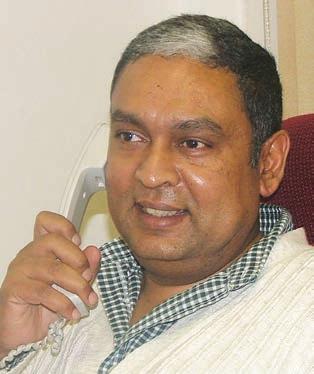
Mental health advocate, leader in education & social impact
President of the South African Federation for Mental Health
Professor Sheila Mokoboto-Zwane has spent her career advancing mental health, education, and leadership across Africa. A trained nurse, counselling psychologist, and academic, she has held senior positions across sectors — from universities to international NGOs. As a former CEO of Childfund South Africa and leader within SANParks and UBS Optimus Foundation in Zurich, she brings deep expertise in governance, psychosocial support, and health systems strengthening. She currently serves as Professor Extraordinarius at UNISA and chairs multiple boards.
Global voice for ethics, human rights, and health justice
Founder and Former Director, Steve Biko Centre for Bioethics, University of the Witwatersrand
Professor Ames Dhai is a trailblazer in bioethics and health law. She has been instrumental in integrating ethics and human rights into healthcare education and practice in South Africa. Former Chairperson of the UNESCO International Bioethics Committee and Deputy Chair of South Africa's COVID-19 Vaccine Advisory Committee, she continues to shape international health ethics policy. Professor Dhai is also Editor-in-Chief of the South African Journal of Bioethics and Law and a mediator accredited by the Centre for Effective Dispute Resolution, UK.


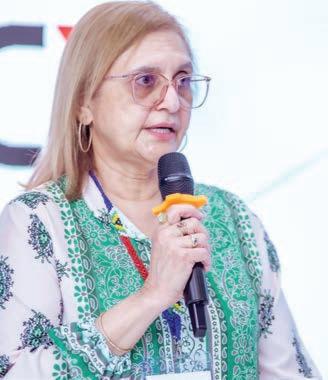
Champion for evidence-based medicine and ethical research
Senior Consultant, Clinical Pharmacology, Groote Schuur Hospital and UCT
Professor Marc Blockman is a highly respected expert in clinical pharmacology, drug policy, and ethical research governance. As Chair of UCT’s Senate Ethics in Research Committee and leader of multiple Data Safety Monitoring Boards, he champions evidence-based medical practice and drug safety. He also advises the WHO and SAHPRA on pharmacovigilance and regulatory issues. An acclaimed teacher, he received UCT’s Distinguished Teachers Award for his contributions to medical education.
Strategist, turnaround leader, and advocate for African excellence
Strategist, Business Leader, and Author
Dr Kaizer Nyatsumba is a strategist, turnaround specialist, and former CEO of the Steel and Engineering Industries Federation of Southern Africa (SEIFSA). With a career spanning leadership roles at PetroSA, Sasol, Anglo American, and Coca-Cola, he has deep expertise in corporate affairs, stakeholder management, and governance. A PhD graduate in Business Management (UJ) and prolific author, he has published widely on leadership, turnaround strategies, fiction, and poetry. Dr Nyatsumba continues to consult, lecture, and contribute to Africa’s corporate leadership landscape.
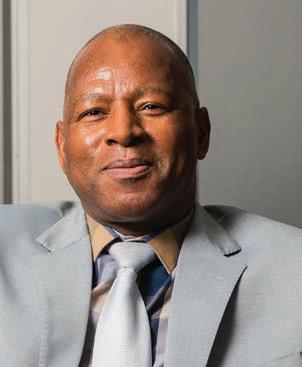
A s part of BHF’s commitment to academic excellence, the 2025 Titanium Awards include a category for Best PeerReviewed Paper, published in the BHF Southern African Health Journal. Now in its fifth year, the journal is a key platform for research and thought leadership on UHC, system reform, financing, and public-private collaboration. The following esteemed judges—leaders in healthcare analytics and public health research—bring exceptional academic rigour and deep sector expertise to this important category:
A top mind in healthcare actuarial and scheme sustainability.
Branch Head, Technical Advisory Consulting Services, Alexforbes Health
Paresh Prema is a healthcare actuary and fellow of the Actuarial Society of South Africa. With over a decade of experience—including his role as Head of Benefits Management at the Council for Medical Schemes—Prema has contributed significantly to healthcare financing, regulatory frameworks, and scheme sustainability. His insights continue to shape benefit design, pricing strategy, and policy discussions within South Africa’s medical scheme environment.
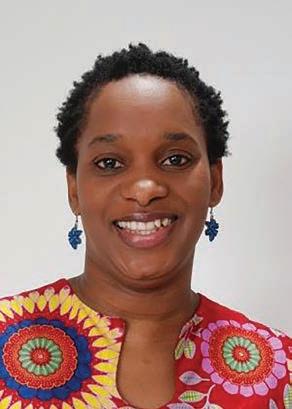

of cancer data, epidemiological research, and public health policy
Dr Muchengeti leads South Africa’s National Cancer Registry and the IARC-GICR Centre of Expertise for cancer registration in Johannesburg. Her work spans cancer epidemiology, data governance, policy development, and capacity-building across the continent. She also serves as a senior lecturer at Wits School of Public Health and a research associate at SACEMA, Stellenbosch University. Her contributions advance the use of reliable health data for decision-making and equity-driven policy interventions—core principles reflected in the journal's editorial mission.
Together, these judges uphold the values of the BHF Southern African Health Journal: rigour, relevance, regional insight, and impact—ensuring that the winning paper exemplifies excellence in knowledge that shapes real-world healthcare outcomes.
2025 TITANIUM AWARDS
Reflections from the 23rd Annual BHF Conference: Recognising trailblazers in healthcare innovation, access, governance, and service.
As we gather in 2025 to forge new partnerships and reimagine healthcare systems, we reflect on the individuals and organisations recognised at the 2024 Titanium Awards, held during the 23rd Annual BHF Conference in Cape Town.
The awards ceremony was a celebration of purpose, leadership, and transformation — with healthcare luminaries such as Professor Nomafrench Mbombo and Bongani Bingwa paying tribute to icons including Dr Clarence Mini, Professor Hoosen J Coovadia, and Professor Mochichi Samuel Mokgokong.
2024 Titanium Award
Dr Clarence Mini Titanium Award for Young Achiever

WINNER: Ziyanda Mavumengwana
2024 Titanium Award
Best Integrated Report: Corporates in Healthcare

WINNER: AfroCentric Investment Corporation Limited
2024 Titanium Award
Best Integrated Report: Medical Schemes
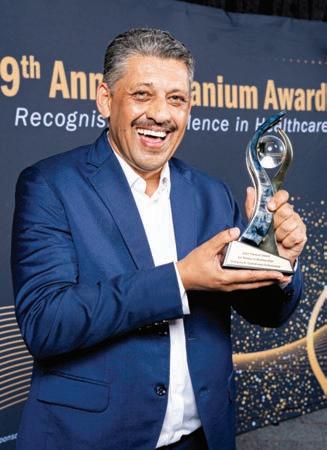
WINNER: Bonitas Medical Fund
2024 Titanium Award
Excellence in Access to Quality Healthcare
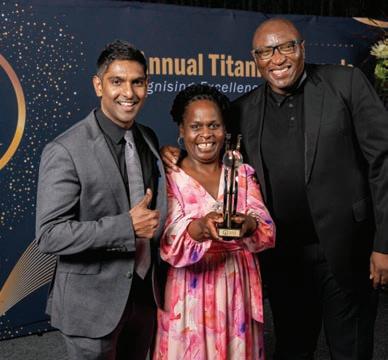
WINNER:
AfroCentric Pharmacy Direct
2024 Titanium Award
Best Peer-Reviewed Paper
Advancing research that shapes smarter, fairer healthcare systems
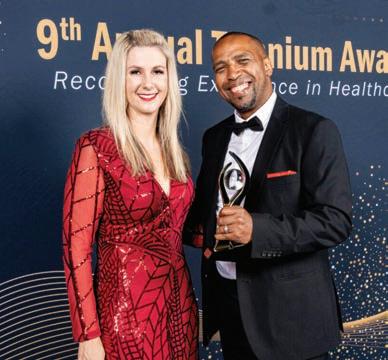
WINNERS: Dr Odwa Mazwai & Alicia Tait
2024 Titanium Award
Service to Membership – Category A (Member Service)
Open, Closed & Self-administered Medical Schemes, Administrators and Managed Care Organisations

WINNER: Platinum Health Medical Scheme
2024 Titanium Award
Service to Membership – Category B (Operational Performance)
Open, Closed & Self-administered Medical Schemes, Administrators and Managed Care Organisations

WINNER: Bonitas Medical Fund
In an era of rapid change, healthcare reform is being reshaped by evolving health needs, rising consumer expectations, and the demand for systems that deliver value. Sustainability across the African region requires bold, transformative partnerships that enable new capabilities; expand access; and build resilient, value-driven systems for a sustainable future that works for everyone.
This year’s conference theme, “Collaborating for Value: Partnerships Transforming the Future of Healthcare – Uniting Parallels,” reflects our focus on strategic alliances that drive innovation, equity, and sustainability across the health ecosystem.
For HPCSA Registered Attendee
Clinical Workshop Day 1 = 7 Ethics
Day 2 = 8 Ethics
Day 3 = 6 Ethics, 2 Clinical
Day 4 = 7 Ethics (2 Clinical for Stream 8)
Day 5 = 4 Ethics
For Registered HPCSA Medical Professional Presenter/s
2 Points per hour when presenting
EVENT
Exhibition Setup 10 May 2025 06:00 – 24:00
Delegate Registration 10 May 2025 14:00 – 16:30
Clinical Workshop 10 May 2025 09:00 – 16:00
BHF Golf Challenge 11 May 2025 10:00
Delegate Registration 11 May 2025 07:00 – 17:00
Governance Workshop 11 May 2025 09:00 – 15:00
Opening Ceremony 11 May 2025 17:00 – 20:00
Networking cocktail 11 May 2025 20:00 – 22:00
Exhibition 11 - 14 May 2025 07:00 – 18:00
Delegate Registration 12 May 2025 08:00 – 15:00
Plenary Session 12-14 May 2025 08:00 – 16:00
Titanium Awards Gala Event 12 May 2025 19:00 till late
Parallel workshops 13 May 2025 11:30 – 17:00
Exhibition Breakdown 14 May 2025 13:30
Saturday, 10 May 2025
Clinical Workshop: 09:00 – 16:00
Programme Director: Dr. Stan Moloabi, BHF Board Member & Principal Officer - GEMS
Workshop theme: The Future of Healthcare: Multidisciplinary Partnerships for Patient-Centred Excellence
Workshop Summary:
This workshop will explore how multidisciplinary teams can drive innovation, improve patient outcomes, and adapt to healthcare reforms such as National Health Insurance (NHI). Experts from different sectors will share insights on how to break silos; align roles; and enhance care co-ordination for better health system sustainability.
Who needs to attend this session:
Medical professionals: doctors, medical advisors, nurses, specialists and other healthcare professionals seeking to advance their clinical skills and stay informed and up to date around the latest advances in healthcare.
CLINICAL WORKSHOP: 09:00–16:00
SESSION 1
V ENUE: CTICC 1
09:00 – 09:05 Programme Overview: Dr Stan Moloabi, BHF Board Member & Principal Officer, GEMS
09:05 – 09:30 Emerging Trends Shaping Healthcare Delivery: Challenges, Innovations & Opportunities
Professor Taryn Young, Distinguished Professor – Stellenbosch University
09:35 – 10:20 Aligning with Universal Health Coverage & Healthcare Reform - Understanding the evolving healthcare landscape and policy shifts - How NHI and other reforms impact healthcare professionals’ roles
Dr Magome Masike, Registrar – Health Professions Council SA (HPCSA) & Dr Rajesh Patel, Head of Health Systems Strengthening – BHF
10:30 – 11:10 AI & The Future of Medicine – Enhancing, Not Replacing, Clinical Decision-Making
How AI can support clinicians in diagnostics, treatment planning, and personalised medicine.
Dr Brian Ruff, Technical Strategist – PPO Serve, and Nomfundo Khabela, Strategic Relationship Executive – Healthbridge
11:10 – 11:45 NETWORKING TEA BREAK
CLINICAL WORKSHOP: 09:00–16:00 V ENUE: CTICC 1
SESSION 2 The Power of Multidisciplinary Collaboration - Who Owns the Patient Journey?
11:45 – 12:05 Why multidisciplinary teamwork is critical for modern medicine
Professor Joseph Arthur Rantloane, Chairperson - Medical & Dental Professions Board, HPCSA
12:10 – 12:30 Strengthening coordination between general practitioners, specialists, nurses, pharmacists, and allied health professionals
Clarifying roles in multidisciplinary teams to optimise care, reduce costs and improve outcomes.
Dr Lerato Motshudi, Medical Director – Akeso
12:35 –13:05 Cancer Care: A multidisciplinary approach
Dr Sarah Nietz, Breast Surgeon
13:10 – 14:10 NETWORKING LUNCH
SESSION 3
14:10 – 14:30 Dying with Dignity – Ethical, Legal, and Clinical Considerations
End-of-life care, palliative medicine, and ethical decision-making in terminal illness management.
Professor Joseph Raimondo, Executive Member – DignitySA; Associate Professor of Neuroscience – University of Cape Town
14:35 – 15:00 Ethical & Legal Considerations in Modern Healthcare
Informed Consent in the Age of Data Privacy – Navigating POPIA & patient autonomy in digital healthcare
Dr Brenda Kubheka, Co-founder and Managing Director of Health – IQ Consulting and Co-founder of Matched Media
15h05 – 15:40 The evolution of the consultation process: past and present
- Staying current: advances in diagnostics and treatment regimens
- Clinical condition management in contemporary practice
Professor Graham Hukins, Associate Professor in Innovation and Research – NorthWest University
15:55 SESSION CLOSURE
Event kindly sponsored by Government Employees Medical Scheme (GEMS) Event Partners: Northwest University Enterprises; Health Professions Council (HPCSA); and Case Manager Association of South Africa
Sunday, 11 May 2025
Governance Workshop: 09:00 – 15:30
Programme Director: Dr Pontsho Mokoena, BHF Board Member & Principal Officer, Barmed
WORKSHOP THEME
Strengthening Governance for Sustainable UHC: Empowering Boards to Deliver Value, Drive Strategy, and Protect Members' Interests
WORKSHOP SUMMARY
As the healthcare landscape continues to evolve, trustees and healthcare leaders must navigate the complexities of Universal Health Coverage (UHC) and National Health Insurance (NHI) while ensuring the sustainability and good governance of medical schemes. This workshop will provide critical insights into governance best practices, compliance challenges, strategic leadership, and member-centric decision-making to equip trustees and healthcare funders with the tools needed for effective oversight.
GOVERNANCE WORKSHOP: 09:00 – 15:30 V ENUE: CTICC 1
SESSION 1
09:00 – 09:05 Programme Overview: Neo Khauoe, BHF Chairperson & Principal Officer – Polmed
09:05 – 09:25 Understanding the Role of Trustees in a Changing Healthcare Landscape –Putting Members First Context of medical schemes amid NHI, affordability challenges, and regulatory shifts.
Dr Katlego Mothudi, Managing Director – BHF
09:25 – 10:15 The Draft King V Code – Its Potential Impact on Governance and Strategic Change in Medical Schemes
Currently in draft stage, the King V Code on Corporate Governance is open for public comment
Michael Judin, Partner and Joint owner at Judin Combrinck Inc.
10:15 – 10:40 Treating Customers Fairly (TCF) – Are Medical Schemes Truly Putting Members First?
Wendy Knowler, Consumer Journalist
10:40 – 11:05 NETWORKING TEA BREAK
SESSION 2
11:05 – 11:50 Beyond the SLA: Designing Value-Based Contracts for Administrators and Managed Care Partners
Dr Vuyo Gqola, COO – GEMS & Professor Graham Hukins, Health Systems Strategist & Associate Professor in Innovation and Research at North-West University
Sunday, 11 May 2025
GOVERNANCE WORKSHOP: 09:00 – 15:30 V ENUE: CTICC 1
SESSION 3
12:00 – 12:25 Fiduciary Responsibility and Member-Centric Governance in Medical Schemes
Phindile Mabaso, Senior Associate – KHR Inc
12:30 – 12:55 Governance Solutions for your scheme
Michelle Beneke, Director – Michelle Beneke Attorneys Inc.
13:00 – 13:25 Regulatory Overreach vs Regulatory Oversight
Jac Marais, Partner – Adams & Adams
13:30 - 14:30 NETWORKING LUNCH
SESSION 4
14:30 – 15:20 INTERACTIVE WORKSHOP
Trustees’ Role in Leading Sustainable Healthcare: Strengthening Oversight, Driving Value, and Navigating Change
Moderated by: Dr Pontsho Mokoena – Programme Director
WORKSHOP OVERVIEW
This interactive session is designed to empower trustees to lead with confidence, agility, and accountability in a rapidly changing healthcare environment. Instead of formal presentations, expect open dialogue, peer learning, and real-time problem-solving.
Key focus areas:
Strengthening Board Oversight: Practical strategies to enhance governance, fiduciary responsibility, and ethical leadership.
B alancing Financial Sustainability and Member Value: Tools to align benefit design, cost management, and member impact.
Navigating Regulatory Change: Preparing boards for NHI, affordability pressures, and evolving reforms while maintaining agility.
PANELLISTS
Dr Vuyo Gqola, COO - GEMS
Dr Katlego Mothudi, Managing Director, BHF
Prof Graham Hukins, Health Systems Strategist & Associate Professor in Innovation and Research, North-West University
Phindile Mabaso, Associate, KHR Inc
Michelle Beneke, Director, Michelle Beneke Attorneys Inc.
CONFERENCE PROGRAMME
Sunday, 11 May 2025
17h30-20h30
Programme Director: Nokuzola Mtshiya, Head: Stakeholder Relations and Business Development - BHF
THEME
Unlocking Transformational Impact Through Partnerships
VENUE
17:30 – 17:45 ARRRIVAL
17:50 – 18:10 OPENING ADDRESS
CTICC 2 HALL 5 AND 6
BHF Chairperson: Neo Khauoe, BHF Chairperson & Principal Officer - Polmed
18:10 – 18:40 GUEST SPEAKER: The Grand Experiment: Lessons from the GNU for healthcare
Dr Pali Lehohla, Board Member – Institute for Economic Justice and Former Statistician General
18:45 – 19:20 Keynote Address: Uniting parallels - Bridging Divides to Transform Healthcare
Professor Bonang Mohale, Chancellor – University of the Free State; Member of the World Economic Forum’s Community of Chairpersons
19:25 – 20:25 The AI Revolution
Dr Adam Pantanowitz, Entrepreneur, Impact Investor, Speaker, and Singularity University Faculty
Opening Ceremony kindly sponsored by AstraZeneca’s Phakamisa NCD program
AV kindly powered by Universal Healthcare (Pty) Ltd
20:30 – 22:30 NETWORKING COCKTAIL FUNCTION
CTICC 2 Hall 9 and 10
The cocktail function is kindly sponsored by AstraZeneca’s Phakamisa NCD program
Programme Director: Gugulethu Mfuphi, Radio Broadcaster
SESSION OVERVIEW
This opening plenary will assess the impact of healthcare collaborations in Africa and globally. We will explore whether current partnerships are driving sustainable transformation or falling short amid rising costs, deepening inequalities, and the global shift toward UHC. The session will also reflect on lessons from recent donor funding shifts, including the PEPFAR freeze, highlighting the urgent need for resilient, locally-led solutions. We will examine the evolving role of health insurers as they move from passive funders to active partners in reform—leveraging data, innovation, and value-based care to shape more collaborative and effective health systems rooted in African realities.
VENUE CTICC 2 HALL 5 AND 6
THEME: Healthcare Partnerships – Game-Changer or a fad
07:00 – 07:50 TEA ON ARRIVAL (CTICC 2 EXHIBITION HALL 9 AND 10)
08:05 – 08:20 OPENING REFLECTIONS: BHF MD’s perspective on partnership, policy and progress
Dr Katlego Mothudi, Managing Director - BHF
08:20 – 08:50 GUEST SPEAKER: Global partnerships for Pandemic Preparedness: Lessons from the WHO Global Agreement
Precious Matsoso, Adjunct Professor at Sunway University & co-chair of the Intergovernmental Negotiating Body for the development of a legal instrument, a Pandemic Convention – World Health Organization (WHO)
08:50 – 09:20 GLOBAL PERSPECTIVE: From Payers to Partners: The New Global Role of Health Insurers in System Transformation
Christopher Watney – CEO iFHP (UK)
09:20 – 09:50 HEALTH POLICY IN SA FROM 1994 TO NOW Towards convergence between public and private health financing
Andrew Donaldson, Senior Research Associate Southern Africa Labour and Development Research Unit (SALDRU) – University of Cape Town (UCT), Former Deputy Director-General of the National Treasury
09:50 – 10:20 CASE STUDY: Strategic Partnerships: Advancing Pulmonary Care Through Partnerships – relevant treatment of airway disease in SA in 2025
Dr Petrus Viviers, Pulmonologist
10:20 – 10:50
NETWORKING TEA - BREAK CTICC 2 EXHIBITION HALL 9 AND 10
Proudly sponsored by Government Employees Medical Scheme (GEMS)
Programme Director: Moraki Mokgosana, BHF Board Member & CEO: BOMAID (Botswana)
SESSION OVERVIEW
This session will explore the diverse pathways countries are taking toward UHC, offering a layered analysis across global, regional, and national contexts. We begin with a comparative look at international health financing models, examining how countries around the world are progressing toward UHC—what’s working, what’s not, and the key lessons learned. Finally, the session will unpack proposals currently under consideration in South Africa, examining which models may be more adaptable and sustainable in the local context. By bringing together global evidence, regional experiences, and local innovation, this session offers a rich, fit-for-purpose perspective on how countries in the region can move toward inclusive, effective, and resilient health systems.
VENUE CTICC 2 HALL 5 AND 6
THEME: Pathways to UHC – Comparative Lessons and Contextual solutions
10:50 – 11:20 GLOBAL PERSPECTIVE: What Works and Why: Comparing UHC Models Across the Globe
Jonty Roland, Associate Director – Aceso Global (USA)
11:20 – 12:10 BEYOND THE BLUEPRINT:
Exploring Fit-for-Purpose Alternatives to NHI on the Road to UHC
- Khulekani Mathe, CEO – BUSA
- Dr Simon Strachan, CEO – SAPPF & Steerco Member: UHAC
- Charlton Murove, Head of Research – BHF
12:10 – 12:40 CASE STUDY: Holistic Management of Obesity from Cradle to Grave: Integrating Preventive and Curative Strategies in Universal Healthcare Systems
Professor Partha Kar, Consultant Diabetes & Endocrinology – NHS England & GIRFT (UK)
12:40 – 13:00 CASE STUDY: Exploring how lessons from diverse industries can inform innovative partnerships that accelerate progress toward UHC
Carsten Schubert, Director, Sales & Operations – Transnova
13:00 – 13:10 Q&A Session
13:10 – 14:10 NETWORKING LUNCH CTICC 2 EXHIBITION HALL 9 AND 10
Proudly sponsored by Government Employees Medical Scheme (GEMS)
3
Monday, 12 May 2025 (Plenary Session 3)
Programme Director: Dr Themba Hadebe,
BHF Board Member & Clinical and Managed Care Executive - Bonitas
SESSION OVERVIEW
Employee health and productivity are strategic priorities for employers, funders, and entities like the Compensation Fund. This session uses case studies to explore how partnerships among employers, medical schemes, providers, and government drive integrated care—reducing costs, improving outcomes, and boosting retention.
VENUE
CTICC 2 HALL 5 AND 6
THEME: Partnerships for Employee Wellness – Building Inclusive, Productive Workplaces
14:10 -15:20 Panellists Include:
Beyond Compensation: Building a Proactive Approach to Employee Health & Injury Prevention
Farzana Fakir, Acting Commissioner – Compensation Fund
The Workplace as a Health Hub: Redefining Employee Wellness Beyond Treatment Professor Spo Kgalamono, Executive Director – NIOH /NHLS
Smart Health Administration: Using Data & Partnerships to Drive Workplace Wellness
Dr Nono Ledwaba-Mweli, Medical Director – Universal Care
Corporate Wellness as a Business Strategy: Investing in Employee Health for Higher Productivity
Dr Penny Mkalipe, Chief Medical Officer – ESKOM Holdings
Case Study: Occupational Health in SAPS: Wellness and Mental Health Focus
Dr. Malebo Majatladi, Senior Manager of Clinical Service – POLMED
15:20 NETWORKING TEA-BREAK
CTICC 2 EXHIBITION HALL 9 AND 10
Proudly sponsored by Government Employees Medical Scheme (GEMS)
18:00 for 19:00 until 24:00 | The 10th Annual Titanium Awards Gala Banquet
DRESS CODE: “BLACK WITH A TOUCH OF GOLD”
Master of Ceremonies: Dr Michael Mol, SAs TV Doctor
Conferring the Awards: Prof Precious Matsoso
CTICC 2 HALL 5 AND 6
Adjunct Professor at Sunway University & co-chair of the Intergovernmental Negotiating Body for the development of a legal instrument, a Pandemic Convention – World Health Organization (WHO)
The 10th Titanium Awards gala banquet is kindly sponsored by Insight Actuaries & Consultants
Programme Director: Francina Mosoeu, BHF Board Member & Principal Officer, SAMWUMED
SESSION OVERVIEW
Amid economic uncertainty and a shifting global funding landscape, this multi-sectoral panel will explore where investment is most urgently needed across the healthcare value chain—and how to attract it. As many countries progress toward Universal Health Coverage (UHC) through various models, leaders from healthcare will discuss what makes a health system investable and how to unlock equity through public-private partnerships and integrated care models.
Key Discussion Points:
What do investors look for in uncertain healthcare markets?
How can medical schemes invest strategically in the context of NHI?
How can PPPs and integrated models unlock equity and scale?
What makes a healthcare environment investment-ready?
VENUE
CTICC 2 HALL 5 AND 6
THEME: Investing in the Health Value Chain – Catalysts for Scalable and Sustainable Delivery
09:00 – 10:30 Panellists Include:
Capital trends and what investors need to see in health markets
Arun Kumar, Principal Investment Officer – African Development Bank
The opportunities and challenges involved in scaling private hospital networks in the current environment
Dr Dumani Kula, CEO – Busamed
Investing in Intelligent Health Systems: How AI is Transforming Healthcare Delivery and Investment Priorities
Huguette Diakabana, AI and Digital Health Advisor and Former Co-Chair – WHO Digital Health Technical Advisor Group (Switzerland)
Strategic Investments for Medical Schemes in the NHI Era: Unlocking Opportunities for Future Relevance
Michelle Beneke, Director – Michelle Beneke Attorneys Inc
10:30 – 11:00 NETWORKING LUNCH
CTICC 2 EXHIBITION HALL 9 AND 10
Proudly sponsored by Government Employees Medical Scheme (GEMS)
STREAM OVERVIEW
These eight curated streams offer deep dives into priority areas shaping the future of healthcare. Designed to spark debate, share innovation, and challenge traditional thinking, each stream brings together thought leaders, implementers, and disruptors to accelerate progress toward resilient, equitable, and sustainable health systems. Most of the presenters featured in these sessions were selected through our Call for Abstracts, showcasing real-world experiences, research, and innovations submitted by professionals across the healthcare ecosystem.
STREAM 1
Venue: Watsonia & Bluebell 11h00-12h30
SESSION THEME
Rare Diseases – transforming care
Session powered by: AstraZeneca
FACILITATOR:
Charlton Murove, Head of Research – BHF
Welcoming: Deepak Arora
Country President African Cluster - AstraZeneca
TOPICS INCLUDE
Public/Private Partnerships and the importance of a Multidisciplinary team in Rare Diseases
Kelly du Plessis, CEO and Founder – RDSA
Rare Diseases Funding Models in MEA Markets
Jennifer Jackson, MEA Director Government Affairs and Policy
The Case for whole Genome Sequencing in Clinical Practice
Prof Chris Vorster, Director Centre for Human Metabolomics – North-West University
STREAM 2
Venue: Daisy/Freesia/Orchid 11h00-12h30
SESSION THEME
AI / Data
FACILITATOR:
Dr Themba Hadebe, BHF Board Member & Clinical and Managed Care Executive – Bonitas
TOPICS INCLUDE
Essential Health System Datasets for the Future of AI-Driven Healthcare
Dr Setumo Mohapi, Group CEO – Digital Public Infrastructure Solutions (Pty) Ltd
AI-Driven Innovation: Transforming the Future of HIV and Chronic Disease Programmes
Huguette Diakabana, AI and Digital Health
Advisor and Former Co-Chair – WHO Digital Health Technical Advisor Group (Switzerland)
Data-Driven Decision-Making in Healthcare: Using predictive analytics and big data to optimise healthcare planning and resource allocation
Dr Brian Ruff, Technical Strategist – PPO Serve
12:30 – 13:30 NETWORKING LUNCH (EXHIBITION HALL 9 & 10)
Proudly sponsored by Government Employees Medical Scheme (GEMS)
4
Tuesday, 13 May 2025 (Streams 3-5)
STREAM 3
Venue: Plenary Hall 5 and 6 13:30 – 15:00
SESSION THEME
Addressing social determinants using benefit design
FACILITATOR:
Dr Nkateko Msimeki, GM, Health Policy and Medial Advisory Unit –Medscheme
TOPICS INCLUDE
Growth or redistribution as the solution to inequality and improving Social Determinants of Health
Barry Childs, joint CEO – Insight Actuaries & Consultants
Tackling the Burden of Disease & Social Determinants of Health, focusing on Climate Change and Healthcare Resilience: Understanding the impact of environmental shifts on health
Dr Nontuthuzelo Thomas, Head of Providers: Health Product Development –Momentum Health
Socioeconomic Determinants and Mental Health Outcomes: An Analysis from 2019 to 2023
Jacob Thenga, Actuarial specialist – GEMS
STREAM 4
Venue: Watsonia & Bluebell 13:30 – 15:00
SESSION THEME
Innovative Contracting
FACILITATOR:
Mike Wilson, BHF Board Member and Chairperson – BP medical scheme
TOPICS INCLUDE
Developing New South African Private Sector Maternity Care and Contracting Models: Findings from a deliberative dialogue and towards mapping a way forward?
Professor Tanya Doherty, Professor – Health Systems Research unit (SAMRC)
Transforming Palliative Care Through Value-Based Partnerships: A Case Study by Alignd and GEMS in South Africa
Dr Lungi Nyathi, CEO – Aligned & Odette September, Manager: Hospital Benefit Management – GEMS
15:00 – 15:30 Networking TEA BREAK (EXHIBITION HALL 9 & 10)
STREAM 5
Venue: Daisy/Freesia/Orchid 13:30 – 15:00
SESSION THEME
Universal Health Coverage
FACILITATOR:
Dr Ali Hamdulay, CEO –Metropolitan Health and BHF UHC committee member
TOPICS INCLUDE
What does the future of the private sector funding hold
Vishal Brijlal, Senior Country Advisor – CHAI
The Future of Medical Schemes in an NHI/UHC Era: What role do medical schemes and private healthcare funders play post-NHI/UHC implementation?
Lungile Kasapato, CEO – PPO Serve
Do the current Private Sector Proposals compromise UHC in South Africa?
Nabeela Cassim, Independent consultant – Genesis Analytics
Proudly sponsored by Government Employees Medical Scheme (GEMS)
Tuesday, 13 May 2025 (Streams 6-8) DAY 4
STREAM 6
Venue: Plenary Hall 5 and 6 15:30 -17:00
SESSION THEME
Fraud Waste and Abuse
FACILITATOR:
Vusi Makanda, Manager –Bonitas
TOPICS INCLUDE
Strengthening Healthcare Integrity: The Role of PublicPrivate Partnerships in Combating Corruption
Thulani Mkhungo, Chief Risk Officer – Special Investigations Unit (SIU)
Shifting the Paradigm: From Recovery to Prevention in Combating Healthcare Fraud, Waste, and Abuse
Michelle Beneke, Director –Michelle Beneke Attorneys
Rewiring Collaboration: Building a Healthcare System That Fraud Cannot Exploit Jan Bezuidenhout, Data Scientist – Riskcede
STREAM 7
Venue: Watsonia & Bluebell 15:30 -17:00
SESSION THEME
Finance, Actuarial and Health Economics Perspective
FACILITATOR:
Heinrich Nashenda, BHF board member & Trustee – GEM Health Medical Aid Scheme (Namibia)
TOPICS INCLUDE
The 25% Solvency Framework and Regulation 30 – Risk based capital – a strategic imperative for medical scheme resilience Botlhale Letsoalo, Principal Officer – Restricted Scheme
Case Study: The impact of regulation 30 on investment performance for medical schemes & risk based capital Vurhonga Rikhotso, Chief Financial Officer – Bonitas
Health Technology Assessments (HTAs): Unlocking Strategic Value in Medical Scheme Decision-Making
Shelley-Ann McGee, Consultant, health economics and health policy – Insight Actuaries and Consultants
STREAM 8
Venue: Daisy/Freesia/Orchid 15:30 -17:00
SESSION THEME Primary Care
FACILITATOR:
Dr Rajesh Patel, Head of Health systems strengthening – BHF
TOPICS INCLUDE
Type 2 Diabetes Reversal: An Innovative Digital Solution in partnership with Medshield Medical Scheme
Dr Shay Ganesh, Chief Medical Officer – Medshield
The Applicability of Teledentistry in Africa: A systematic review of systematic reviews
Dr Tumi Mahlangu, Dental advisor – DENIS
Outcome Measurement in the Management of Diabetes and Hypertension: Insights from the Cimas Healthcare Model
Dr Tsitsi Moyo, General Manager – CIMAS
17:00 | Session closure & evening at leisure AV kindly powered by Universal Healthcare (Pty) Ltd
Programme Director: Clement Manyathela – Television and Radio Broadcaster
SESSION OVERVIEW
This high-level session brings together industry leaders, healthcare strategists, and legal experts to explore how evolving policy and regulatory frameworks are shaping – and in some cases, stalling – healthcare transformation.
With rising costs, regulatory uncertainty, and growing workforce shortages, the healthcare environment is increasingly drifting away from the core principles of equity and solidarity.
The session will critically examine the impact of recent policy shifts, including the proposed NHI regulations, ongoing court cases, the block exemption, hybridisation of healthcare products, and the stagnation around the introduction of low-cost benefit options. Speakers will reflect on what has driven these changes, how the system can be redirected to prioritise inclusive access, and what it will take to create a regulatory environment that truly enables transformational partnerships.
VENUE CTICC 2 HALL 5 AND 6
THEME: Creating an Enabling Environment for Transformational Health Partnerships
09:05 – 09:35 The cheese Has Moved: Understanding the Shifting Foundations of Healthcare Financing
Christoff Raath, Joint CEO – Insight Actuaries and Consultants
09:40 – 09:55
Access Denied: The LCBO Stand-Off
Siphosakhe Phakathi, Senior Associate – Werksmans Attorneys
10:00 – 10:20 The Block Exemption Dilemma: Real Reform or Regulatory Theatre?
Misha van Niekerk, Senior Associate – Adams and Adams
10:25 – 10:35 The BHF NHI Legal Challenge Unpacked
Helen Michael, Director – Werksmans Attorneys
10:40 –12:00 NHI in the Courts: Safeguarding the Future of Healthcare Access
Panellists Include legal teams representing:
BHF: Neil Kirby, Director – Werksmans Attorneys
SAPPF: Glenn Penfold, Partner – Webber Wentzel
SAMA: Elsabe Klinck, Managing Director – Klinck & Samuels
12:00 – 12:20 Closing Ceremony & Vote of thanks
Dr Katlego Mothudi, Managing Director – BHF
AV kindly powered by Universal Healthcare (Pty) Ltd
12:20 – 13:20 LIGHT LUNCH
BHF has developed tools tailored to strengthen our members' systems, aligning them with the evolving needs of the population
Comparison dashboard highlights trends in the healthcare funding sector across Southern Africa. Key metrices include financial comparisons; utilisation of health services, chronic disease prevalence; quality of care and the costs of health services to the schemes. Risk profiles of schemes are also included.
Comparison:
Monitor tariff costs over time across SADC countries including Malawi, South Africa, Namibia, Lesotho, eSwatini, and Zimbabwe. This comparative analysis helps in understanding regional healthcare cost dynamics.
Measure both access to and effectiveness/quality of health interventions. Evaluate the percentage score indicating the proportion of an at-risk population receiving required interventions, adjusted for the quality of those interventions. This tool aids in gauging the impact of healthcare services on population health outcomes.
Access comprehensive PCNS data on healthcare providers and facilities per country. Gain insights into distributions of providers per population and demographic makeup of providers. These dashboards empower informed decision-making in healthcare provider selection and resource allocation.
Combat healthcare fraud, waste, and abuse through our dedicated platform and portal. Utilize advanced analytics and reporting functionalities to identify and address fraudulent activities within the healthcare sector. Safeguard the integrity of healthcare services and financial resources with proactive measures.





AstraZeneca is a global, innovation-driven biopharmaceutical company pushing the boundaries of science to deliver life-changing medicines.
Science can change our vision of the world and how we deal with the diseases that affect us. The future of treatment for many of today’s diseases lies in uncovering mechanisms that are newly emerging—or still to be discovered.
Science challenges us to push the limits of what’s possible to deliver life-changing medicines for patients in Africa. This is why we put science at the centre of everything we do.
Our commitment to improving health outcomes for African patients extends far beyond our medicines. We offer programmes that advance patient health and access along the care continuum and provide reliable support networks.
When we see an opportunity for change, we seize it— because an opportunity, no matter how small, can be the start of something big.
3Sixty Global Solutions Group (3Sixty GSG) is an integrated solutions group that offers diverse products and services in the pharmaceutical and medical aid industries.
3Sixty GSG started as a Medical Aid (Health Insurance) Administration business in South Africa, providing administration and managed care services to Sizwe-Hosmed.
3Sixty GSG is invested in medical aid administration, biomedicine, nuclear medicine and cannabis among innovations it is pursuing.
Our strategy is based on the concept of ‘Ubuntu Medicine’ derived from an African culture of care. Ubuntu is a Zulu word loosely translated as ‘being human’; some say it means you are because I am”, Human solidarity!”
TEL: 011 353 0000
EMAIL: info@3sixtyhealth.co.za
WEB: www.3sixtygsg.co.za
The Government Employees Medical Scheme (GEMS) is the largest restricted medical scheme in South Africa, trusted by over 880 000 principal members and more than 2,3 million beneficiaries. Established in 2005, GEMS opened its doors to qualifying public service employees in 2006, and has become a leader in the South African healthcare industry, setting a standard of excellence to be emulated.
To ensure and safeguard the wellbeing of its members, GEMS offers five comprehensive healthcare benefit options, and one efficiency discount option: Tanzanite One, Beryl, Ruby, Emerald Value, Emerald, and Onyx. Each of these options is designed to provide public service employees and their families with the best possible medical care at the most affordable rate.
Our vision is to become an excellent, sustainable, and efficient medical scheme that drives transformation in the healthcare industry, aligned with the principles of Universal Healthcare Coverage (UHC).
TEL: 0860 00 4367
EMAIL: enquiries@gems.gov.za
WEB: www.gems.gov.za
Phakamisa v/t [phaga’mi:sa]: IsiZulu for elevate, lift, raise, uplift, upliftment.
Phakamisa is AstraZeneca’s accessto-healthcare initiative in South Africa. Through partnerships with multiple healthcare stakeholders, we aim to improve health outcomes and reduce the burden of non-communicable diseases on the public healthcare system.
The programme specifically addresses early disease detection, the promotion of primary prevention, and access to care.
Phakamisa is delivered through a three-pillared approach: Training, Awareness, and Access—with a current focus on improving breast, prostate, and lung cancer management in the public sector.
Evolve with Universal Healthcare, South Africa's fastest-growing healthcare powerhouse. As a formidable partner safeguarding over 10.6 million lives globally and driving more than 30 health insurance plans locally, we're not just participating in healthcare evolution – we are leading its future.
We fast-track our clients to the forefront of digital transformation, fusing cutting-edge technology, streamlined administration, and unrivalled healthcare expertise to unlock extraordinary value. Our visionary solutions accelerate efficiency, maximise affordability, and elevate health outcomes with a human-centred approach, securing lasting sustainability for our partners.
From MediKredit's precision-engineered full-service clearinghouse solutions, to Universal Corporate Wellness's comprehensive health and wellness initiatives, our services don't just support – they empower and transform, delivering measurable, game-changing results. As dynamic collaborators, we are revolutionising the healthcare landscape by forging profound and lasting change through purpose-driven innovation.
Whether you're a trustee, stakeholder, or decision-maker, Universal stands ready to help you deliver real results.
WEB: www.universal.co.za
Cape Sativa is a USA incorporated subsidiary of 3Sixty Global Solutions Group. Cape Sativa invested in the development of a Nano Technology Platform that makes cannabinoids more water soluble, more stable, with enhanced cellular absorption, for application in pharmaceuticals, medicinals, nutraceuticals, cosmeceuticals, beverages, and edibles.
The business was officially registered in 2022 and has a few pipeline products to be launched in the market. Cape Sativa aims to deliver the ‘promise’ of Cannabis through rigorous product development and clinical trials.
Cape Sativa has also advanced the development of treatments for melanoma and non-melanoma skin, cervical and ovarian cancer. Cannabis will target under explored therapeutic pathways, to the endocannabinoid system.
TEL: +27 10 593 4630
EMAIL: info@cape-sativa.com
WEB: www.cape-sativa.com
3Sixty Biomedicine is a proudly South African pharmaceutical company specialising in complementary and alternative medicine (CAM) committed to providing innovative, science-backed solutions for women’s health, immune support, and migraine relief. As a key entity within the 3Sixty Global Solutions Group, our work is guided by a deep understanding of the intersection between science, nature, and the healthcare needs.
We focus on the research, development, and commercialization of high-quality medicinal products that are grounded in both modern pharmaceutical science and the rich tradition of African and herbal medicine. Our product portfolio includes natural therapies, immune support, pain management, women’s health, and lifestyle-enhancing formulations — all developed with a strong emphasis on efficacy, safety, and regulatory compliance.
At the core of our mission is the belief that healthcare should be effective, affordable, and available to all. That’s why we are dedicated to ensuring that our products are widely accessible through major retail chains, pharmacies, and healthcare distribution networks across South Africa and beyond.
WEB: www.3sixtybiomedicine.co.za
The CDE Group is a South African subsidiary of 3Sixty Global Solutions Group. Having joined forces with 3Sixty GSG, the company will continue to offer holistic and person-centred diabetes technological solutions through our innovative and effective healthcare and AI supported solutions which is further enhanced by our multi-disciplinary approach.
We are at the cutting edge of bringing state-of–the-art solutions to the South African market, exampled by the exciting launch of the newest continuous glucose monitoring device (CGM) at an accessible price. CDE is committed to increasing quality access to care through value-chain disruption in the interest of both patients and medical schemes alike. Investment in pathology, dialysis, specialised pharmacy, nutrition, education available to communities.
WEB: www.cdeonline.co.za
The AfroCentric Group stands as Southern Africa’s largest, most diversified and fully integrated healthcare company, driving sustainable impact through accessible, affordable and quality healthcare solutions. Since its JSE listing in 2008, AfroCentric has expanded through three core divisions: health administration and managed care, pharmaceutical solutions, and corporate wellness.
Medscheme, the Group’s flagship, manages health risks and administers schemes for over 4 million members, including Fedhealth, GEMS, and Polmed. Its managed care portfolio also includes Klinikka, Aid for AIDS (AfA), and Denis. In pharmaceuticals, Pharmacy Direct leads as South Africa’s largest courier pharmacy, supported by Activo Health, Curasana, Forrester Pharma, and Scriptpharm for end-to-end medicine delivery. Sanlam Health, formerly AfroCentric Corporate Solutions, manages wellness and insurance through brands like AfroCentric Health Insure, EssentialMED, and Workcare.
Sanlam’s 60% acquisition in May 2023 marked a strategic shift, enabling AfroCentric to merge clinical excellence with financial strength to drive holistic, sustainable healthcare across Africa.
LINKEDIN: AfroCentric Group
FACEBOOK: AfroCentric Group WEB: www.afrocentric.za.com
Throughout our proud history as one of South Africa’s most trusted and enduring medical schemes, CompCare has remained true to our aim: to be the change we want to see. Today, this means unlocking a brighter healthcare future for members and our industry as a whole, even as we navigate many challenges together.
Driven by a team of seasoned professionals, CompCare excels at delivering a diverse array of options to meet the needs of today’s medical scheme members. From our groundbreaking, digitally enabled entry-level plan, which is designed to broaden much-needed access, to our executive corporate solutions and family-focused care, CompCare continually affirms the relevance of medical scheme cover in today’s world – now more than ever before.
At CompCare, we consider ourselves custodians of our members’ future health – a responsibility underscored by our market-leading wellness benefits. Our programmes are designed to encourage active participation in preventative care across all scheme options, employing user-friendly digital solutions that allow members to manage their wellbeing effortlessly, as if on autopilot. Our members are the guiding force behind our agile and adaptive approach, continually inspiring us to aim higher and achieve more.
Operating in over 25 African countries, Insight delivers comprehensive actuarial and strategic analytics services for medical schemes, health insurers, and providers. Our core expertise spans pricing, benefit design, budgeting, IFRS 17 reporting, and risk-based capital, complemented by advanced healthcare analytics that empower clients to manage claims, operations, and member value.
Our proprietary clinical risk tools — the Insight DRG and EPG — power platforms for provider benchmarking, fraud detection, value-based reimbursement, and network development, ensuring sustainable and efficient healthcare delivery.
The Data Solutions team provides end-to-end data engineering, warehousing, BI, and AI-driven insights. Whether integrated into existing systems or delivered as a hosted service, our AIOps-ready framework supports scalable, intelligent decision-making.
Health Solutions offers expert advisory in clinical governance, strategy, health tech assessment, compliance, coding, and quality improvement. With 200+ years of combined experience, our team of clinicians, economists, and specialists partners with funders, providers, and governments to drive system-wide health improvements.
As part of Momentum Group Limited, Momentum Health – and its affiliate Metropolitan Health – offer solutions that support and empower consumers, businesses and medical schemes towards sustainable healthcare. Our purpose is to provide more health for more South Africans for less, and we do this by delivering sustainable solutions and enabling greater universal access to healthcare for more people through our focused CSI and strong public private partnerships.
We provide services to around 3 million lives in South Africa, 420 00 lives across the rest of the African continent and 24 million lives in other international territories. This includes servicing more than 187 000 lives with our health insurance solutions and providing primary healthcare for approximately 91 000 mining sector employees. Our clients include the largest restricted medical scheme in South Africa, one of the fastest growing open medical schemes in South Africa and several restricted schemes linked to blue-chip corporate brands and state-owned enterprises (SOEs).
With stakeholders representing key unions and other black leadership as shareholders in our business, we ensure that the needs we identify and set out to provide solutions for are a true reflection of the people we serve.
Medscheme is South Africa’s largest health risk management provider and one of the country's leading medical scheme administrators, managing over four million lives. Clients include Fedhealth, Medshield, Bonitas, GEMS and Polmed.
LINKEDIN: Medscheme holdings
WEB: www.medscheme.com/
Medipost Pharmacy, South Africa’s first courier pharmacy, has served over 1.1 million clients since 1991. With branches in Pretoria and Cape Town, it specialises in chronic and specialty medication delivery, including ART, diabetes, and oncology treatments. Operating under strict quality standards, Medipost ensures timely, nationwide access—even in remote areas. Serving both public and private sectors, it plays a vital role in public health. Online shopping at shop.medipost.co.za adds further convenience and value.
The Health Professions Council of South Africa (HPSCA), established by the Health Professions Act of 1974, governs professional activities within its scope, setting processes to protect the public and guide health professions. Along with its 12 Profes¬sional Boards, the HPCSA oversees education, training, registration, pro¬fessional conduct, ethical behaviour, Continuing Professional Develop¬ment, and compliance with healthcare standards. Registration under the Act is mandatory for practicing any health profession recognised by the Council.
Mediscor PBM is the largest independent pharmaceutical benefit management organisation in Southern Africa, specialising in real-time claims processing and the management of medicine benefits. Over the course of 36 years, Mediscor has continuously set the benchmark through innovative, measurable, and outcomedriven solutions. We manage more than 2.6 million lives across a diverse list of more than 60 funder clients.
TEL: 27 (12) 674 8000
WEB: www.mediscor.co.za

Novo Nordisk is a leading global healthcare company, founded in 1923 and headquartered in Denmark. Our purpose is to drive change to defeat diabetes and other serious chronic diseases such as obesity and rare blood and endocrine disorders. We do so by pioneering scientific breakthroughs, expanding access to our medicines, and working to prevent and ultimately cure disease. Novo Nordisk employs about 57 100 people in 80 countries and markets its products in around 170 countries.
WEB: www.novonordisk.com
Rand Mutual Assurance (RMA) has supported South African workers since 1894, originally providing compensation to injured miners. Today, RMA offers holistic, life-long support through a wide range of risk and benefits solutions, including Group Life Assurance, Disability Income, Critical Illness, Funeral Cover, Personal Accident, Riot Cover, and COID International Cover. Evolving from a product-based insurer to a comprehensive partner in worker well-being, RMA ensures timely care and compensation for occupational injuries – delivering meaningful impact throughout the worker’s life journey.
2Cana Solutions develops cuttingedge software that redefines industry standards, with a focus on quality and cost-effective business solutions. Our flagship product, the Holistic Insurance Platform (HiP), enables seamless management of medical aids, third-party administrators, and life, micro, and short-term insurance. HiP ensures agility, compliance, and innovation. With a proven track record, 2Cana is more than a software provider—we’re your trusted partner in long-term success.
TEL: +27 31 5833 200 WEB: www.2cana.com

The SA Red Cross Air Mercy Service (AMS), a non-profit aero-medical organisation established in 1966, delivers innovative air ambulance, rescue and rural health outreach services across South Africa. As the only operator in Southern Africa offering a complete package of aero-medical care, AMS uses a mix of fixed-wing and rotor-wing aircraft and ground support vehicles to reach underserved communities - guided by its core purpose: ensuring equitable access to quality healthcare for all.


A unified health IT ecosystem — secure, modular and built for speed. Our realtime integration hub powers claims, authorisations, biometric verification and clinical data exchange across funders and providers, providing 10 years of unrivalled bespoke systems. Healthcare, reimagined: built for tomorrow, running today. Powered by Apace.
Argon Asset Management is an authorised financial services provider, registered with the Financial Sector Conduct Authority (FSCA) under the Financial Advisory and Intermediary Services (FAIS) Act of 2002. Since 2005, we have been managing assets on behalf of both individual and institutional investors - including retirement funds, insurers, medical schemes, multi-managers and tertiary institutions. As a research-driven investment manager, we are committed to delivering medium- to long-term value while fostering enduring, trust-based relationships with our clients.




D-Healthcare & Wellness, founded by Sr Doreen Khangale in 2021, is a private clinic offering primary and occupational healthcare services. We provide holistic care through consultations, chronic illness management, wellness programmes, maternal and child health, men’s health, IV therapy and workplace assessments — prioritising prevention, innovation and accessibility to health for all communities.
Forvis Mazars is a global professional services network with two members: Forvis Mazars LLP in the us and Forvis Mazars Group SC, operating in over 100 countries. They deliver audit, tax, advisory and consulting services across the globe.
WEB: www.forvismazars.com/za/en
HEAPS is a B2B SaaS platform leveraging generative AI and machine learning to streamline care management and coordination. Operating across five regions, including India and South Africa, HEAPS improves patient outcomes and reduces healthcare costs. Its flagship modules—Chronic Care Management (CCM) and Post Discharge Care Management (PDCM)—help lower hospitalisation and re-hospitalisation rates. With over 5 million interactions, HEAPS delivers 5–6x ROI, cutting hospitalisations by 10–15% and re-admissions by 30–35%, while boosting patient satisfaction by 25%.











EMGuidance is South Africa’s leading digital platform for healthcare professionals, offering instant access to trusted medicine information, clinical guidelines, tools, e-scripting, accredited courses, CPDs and job opportunities. With integrated content, community, education, and recruitment, EMGuidance empowers frontline healthcare delivery through innovation compliance and connection — right at the point of care.
Gleneagles Hospitals India, part of an international chain of hospitals, IHH Healthcare, delivers advanced, compassionate care across six hospitals in four major cities. Backed by global expertise, we specialise in complex treatments and multi-organ transplants. With cutting-edge technology and patient-first values, we’re committed to clinical excellence, innovation and building trust throughout every step of the healthcare journey.
Hearing loss severely impairs quality of life and increases medical scheme costs, yet remains under-diagnosed due to stigma, cost and access issues. hearConnect addresses this with comprehensive Audiology Ben¬efit Management (ABM) services, ensuring access to quality, cost-effective treat¬ment while reducing exposure to FWA. We offer a network of over 450 audiology practices nationwide, detailed treatment protocols and device formulary, mobile consultations and diagnostic testing via Audiology Any¬where™, and an Online Digital Hearing Screener for early detection.
At Linova Health Care, we are the pioneers of chronic disease management. We are a multidisciplinary team and we work alongside the treating practitioners to eradicate poor treatment adherence and compliance. We walk the journey with the chronic patient from diagnosis to assist in achieving better health outcomes. Our aim is to eradicate complications associated with poor chronic disease management. We focus on early annual health screenings, and operate wellness and patient support programmes for early detection of abnormalities.

Medshield Medical Scheme, established in 1968, is one of South Africa’s most trusted medical schemes. Offering eight affordable plans tailored to every life stage, Medshield provides options from entry-level to comprehensive cover with savings or day-to-day benefits. Members benefit from fast claims processing and nationwide access to top healthcare providers. Combining innovation, digital tools, and personalised support, Medshield ensures a seamless experience. With a focus on continuous improvement and quality care, Medshield is truly your Partner for Life in health and well-being.
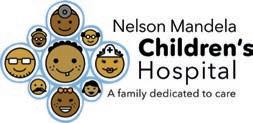
The Nelson Mandela Children's Hospital (NMCH) is the only dedicated children's hospital in Gauteng; the second in the country and Southern Africa region. Based in Parktown Johannesburg, NMCH is a referral tertiary and specialised facility offering critical care to patients. We are a non-government organisation that serves both state and private patients throughout our different service offerings.
PPO Serve is a healthcare manage¬ment company whose core purpose is to make healthcare affordable because it is built on a strong primary healthcare (PHC) system. We do this by helping clinicians to deliver value-based care (VBC) through collabora-tive multidisciplinary teams (MDT) that are built around the GP practice. Our PHC programme is The Value Care Team (TVCT), which puts GPs back in control of patient care and rewards them for the value they produce.
With over 25 years of experience, Nurture Health is South Africa’s largest group of physical rehabilitation hospitals. Guided by our purpose — to enable people and their families to live meaningful, fulfilled lives despite physical impairment — we deliver expert, person-centred care every day, creating better tomorrows across our national network.
TEL: +27 82 485 1981
EMAIL: referrals@nurturehealth.net
WEB: www.nurturehealth.net
Prescient Investment Management has over 25 years of experience delivering financial certainty through data-driven, evidence-based investing. We manage risk and grow wealth for retirement funds, corporate entities, trusts and individuals across diverse solutions, including clean energy and infrastructure. Step into the future with confidence — backed by expertise, insight and a clear, systematic approach.
EMAIL: pimmarketing@prescient.co.za
WEB: www.prescient.co.za/funds/
Technogym is a global leader in wellness solutions, offering innovative equipment, digital platforms and personalised training content. Our integrated ecosystem empowers healthcare providers to deliver preventative care, rehabilitation and long-term wellness programmes. By combining cutting-edge technology with medical expertise, we support healthier lifestyles, reduce chronic disease risks and improve patient outcomes. Technogym is shaping the future of healthcare - where movement becomes medicine and wellness is the standard of care.

Femi-Health by Tshela Healthcare, is a comprehensive maternal (and women’s wellbeing) product the provides a trusted companion for women by combining telecare and digital health tools, enabling them to take control of their physical and mental health and improving health outcomes through tele-counselling, personalised on-demand virtual care, personalised health tracking, verified digital resources , community support and a comprehensive suite of specialised support programmes, including a comprehensive maternity programme.
Welo is a South African HealthTech startup at the forefront of merging global technology with a human touch to deliver real-time access to healthcare. Operating nationwide, Welo serves clients across health insurance, corporate, and FMCG sectors. Services include digital doctor consultations, hospital-at-home care, and wellness days. Focused on quality, convenience, and data-driven care, Welo’s offerings—Hospital-at-Home and WeloCare—ensure accessible, ondemand healthcare for members and employees, transforming how healthcare is delivered across South Africa.
Formed in 2009, the Case Manager Association of South Africa (CMASA) is the sole association for case man¬agers in South Africa, welcoming both clinical and non-clinical professionals such as nurses, doctors, therapists, social workers and administrative staff. CMASA offers a platform for networking, training and develop¬ment nationwide with strong links to International Associations. Members gain access to international best practices, educational materials and peer sup¬port, focusing on patient advocacy and guidance through healthcare journeys.



























Wockhardt Hospitals in India, a part of the renowned Wockhardt Ltd, is a global healthcare destination with facilities in 20 countries. Wockhardt operates five hospitals with 1600 beds, specialising in cardiology, robotics, orthopaedics, neurology and more. Over the last decade, it has treated over 63 000 international patients from 100+ countries. As a JCI-accredited institution, Wockhardt offers world-class care, superior medical outcomes and patient-centric services with cutting-edge technology.
The OHSC is an independent body established under the National Health Amendment Act (No. 12 of 2013) to ensure quality and safety in healthcare by promoting and protecting the health and safety of users (patients) of healthcare services by:
- Monitoring and enforcing compliance of health establishments with norms and standards set by the national health system.
- Investigating and resolving any complaints of non-compliance fairly, efficiently, and in a cost-effective, timely manner.
Altron HealthTech brings over 30 years of expertise in healthcare innovation. We simplify patient care with secure, intuitive solutions, including eHR, claims switching, and practice management. In partnership with Dischem Oncology, we enhance interoperability and care in oncology. Our mission: drive better patient outcomes and transform healthcare through technology, the smart way.


Careplix is a leading health solutions and care delivery organization committed to improving outcomes and reducing costs. With a mission to create a healthier world by prioritizing individuals, Careplix harnesses the power of human-machine collaboration to digitize human experiences. Its AI-driven platform delivers personalized care at speed, enabling a shift from reactive sick care to proactive healthcare. The result is a comprehensive, affordable product suite covering screening, treatment, and measurable outcomes across the full healthcare journey.
ER24 is South Africa’s premier private emergency medical care provider, operating from 59 bases nationwide and delivering quality pre-hospital and emergency response services.
A wholly owned subsidiary of Mediclinic Southern Africa, ER24 is registered with the BHF and HPCSA as an Advanced Life Support service. Its integrated offering spans fund management, aeromedical services, case management, concierge care, repatriation, and more—positioning ER24 as the medical services provider of choice across the African continent.
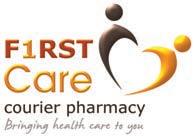
We are an experienced Courier Pharmacy with a “patient-first” approach to all our services. We have been delivering meds to our satisfied clients for the last decade.. We deliver to any address within our national borders. You get to choose whether you would like to receive meds at home, at work, at the Post Office, at your Doctors rooms or at an occupational health clinic.

Helping care providers restore lives We offer a broad range of innovative advanced wound care and surgical solutions that are intended to accelerate healing, prevent complications, and lower the total cost of care globally. We listen closely to understand their toughest challenges, then find new ways to solve for better outcomes and more efficient care. Enabling better, smarter, safer healthcare to improve lives.




NWU Enterprises is a wholly owned private company with an independent board established by North West University in 2024 to grow impact by the University in society through directed research and consulting projects and other ventures that deliver solutions to customers by working closely with NWU researchers and partners.

By Thembelihle Mloyi-Ncube, Group MD, Vivat Health Solutions; BHF Country Representative for Zimbabwe
Zimbabwe’s healthcare system stands at a pivotal moment. Once a source of pride in the region, it now grapples with a complex set of challenges that are testing the resilience of both the public and private sectors. Amid economic strain, a growing burden of lifestylerelated diseases and the impact of shifting international aid dynamics, the path forward demands both innovation and renewed collaboration.
Over the years, Zimbabwe’s public health infrastructure has faced significant pressure. Hospitals and clinics continue to serve a growing population despite resource limitations and economic constraints. These challenges are compounded by an ongoing migration of healthcare professionals seeking more stable working environments and better remuneration outside the country.
The government has made efforts to address some of these issues through recruitment drives, infrastructure development and partnerships with international organisations. However, the gap between service demand and capacity remains wide, especially in rural and underserved areas.
The private sector: Stretched and shrinking Zimbabwe’s private healthcare sector has traditionally provided a buffer against public sector challenges. However, rising operational costs, foreign currency shortages and a shrinking pool of medical specialists have
limited its reach. The affordability of services in private facilities remains a barrier for many, particularly when dealing with chronic and life-threatening conditions that require long-term care.
A notable shift in Zimbabwe’s health landscape is the growing prevalence of non-communicable diseases (NCDs), including cancer, diabetes, hypertension and kidney disease. These conditions, often associated with urban lifestyles and changing dietary habits, are becoming more common and more deadly due to limited early detection and treatment capacity.
Several underlying factors that may be contributing to this trend include:
Dietary transitions: Increased consumption of processed foods high in sugar, salt and fat.
Urbanisation: A shift towards more sedentary lifestyles and reduced physical activity.
Economic stress: Financial pressures and limited access to regular health check-ups.
Public awareness: Insufficient education around prevention and risk management.
The financial burden associated with treating NCDs is a growing concern. Cancer treatment, including chemotherapy and radiation, can run into thousands of US dollars — often requiring patients to seek support from family, NGOs or community fundraising efforts.
Dialysis, essential for patients with end-stage kidney disease, presents a particularly stark challenge.
With each session costing upwards of US$150 – the cost can be as high as US$300 – and patients needing multiple sessions weekly, treatment quickly becomes unaffordable for most Zimbabweans without medical cover or external support. Cancer patients are often hit the worst, with some patients having bills of over US$11 000 per month, an amount beyond the reach of many.
In response, a growing number of patients are turning to regional and international destinations such as India, South Africa and Zambia in search of affordable and specialised care. Medical travel has become an unintended coping mechanism for Zimbabweans seeking alternatives to constrained local services.
While this offers relief to some, it also highlights an opportunity: Zimbabwe has the foundational medical talent and historical reputation to become a hub for healthcare once again — if investment and retention strategies are effectively pursued.
Zimbabwe’s relationship with international donors plays a significant role in the health sector. Support from the US, for instance, has been instrumental in areas like HIV/AIDS care and public health programmes.
However, evolving US policy on bilateral aid, often influenced by broader geopolitical and governance considerations, introduces uncertainty into long-term planning for key health initiatives.
Any reduction or reallocation of external assistance could strain already stretched services, particularly in rural health outreach, maternal care and disease prevention programmes. Sustained engagement and constructive dialogue between Zimbabwe and its international partners remain vital to ensure continued support for the country’s most vulnerable populations.

Thembelihle Mloyi-Ncube, Vivat Health Solutions
As Zimbabwe continues to navigate these health challenges, a few areas stand out as critical for progress:
Health workforce retention: Offering competitive compensation and career development to retain skilled professionals.
Public-private partnerships: Leveraging collaboration to expand service reach and innovation.
National health insurance: Introducing mechanisms to protect households from catastrophic healthcare costs.
L ifestyle education: Promoting preventive health through schools, media and community programmes.
Zimbabwe’s health challenges are not insurmountable. With collective will, strategic investment and a commitment to inclusive development, the nation can begin to rebuild a health system that delivers not only care, but hope — for all Zimbabweans.
AECI Medical Aid Society aecimedicalaidsociety.co.za
Alliance-MidMed Medical Scheme www.alliancemidmed.co.za
Barloworld Medical Scheme www.medscheme.co.za
Bestmed Medical Scheme www.bestmed.co.za
BIMAF WC www.bibc.co.za
Bonitas Medical Scheme www.bonitas.co.za
BP Medical Aid Society www.bpmas.co.za
Building & Construction Industry Medical Aid Fund www.bcima.co.za
Cape Medical Plan www.cmp.co.za
Compensation Fund www.labour.gov.za
CompCare Medical Aid www.compcare.co.za
Consumer Goods Medical Scheme www.cgmedicalscheme.co.za
Engen Medical Benefit Fund www.engenmed.co.za
Fishing Industry Medical Scheme www.fishmed.co.za
Government Employees Medical Scheme (GEMS) www.gems.gov.za
Horizon Medical Scheme www.medscheme.co.za
Imperial Motus Med www.imperialmotusmed.co.za
KeyHealth Medical Scheme www.keyhealthmedical.co.za
Libcare Medical Scheme www.libcare.co.za
Makoti Medical Scheme www.makotihealth.co.za
MBMed www.mbmed.co.za
Medimed Medical Scheme www.medimed.co.za
MEDiPOS Medical Scheme www.medipos.co.za
Medshield Medical Scheme www.medshield.co.za
Old Mutual Staff Medical Aid Fund www.omsmaf.co.za
Optimum Medical Scheme (Opmed)
Pick n Pay Medical Aid Scheme www.pnpms.co.za
Platinum Health www.platinumhealth.co.za
PG Group Medical Scheme www.pggmeds.co.za
South African Police Service Medical Scheme (POLMED) www.polmed.co.za
Rand Mutual Assurance www.randmutual.co.za
Rand Water Medical Scheme www.randwater.co.za/medicalaid.php
Rhodes University Medical Scheme www.rumed.co.za
SABC Medical Aid Scheme www.medscheme.co.za
SAMWUMED www.samwumed.org
SEDMED www.sedmed.co.za
Sisonke Health Medical Scheme www.sisonkehealth.co.za
Sizwe Hosmed Medical Scheme www.sizwehosmed.co.za
Suremed Health Medical Aid Scheme www.suremedhealth.co.za
TFG Medical Aid Scheme www.tfgmedicalaidscheme.co.za
Thebemed www.thebemed.co.za
The Federated Employers Mutual Assurance Company (FEM) www.fem.co.za
Transmed Medical Fund www.transmed.co.za
Umvuzo Health www.umvuzohealth.co.za
Witbank Coalfields Medical Aid Scheme www.wcmas.co.za
Wooltru Healthcare Fund www.wooltruhealthcarefund.co.za
ADMINISTRATORS (SA)
Medscheme Holdings www.medscheme.com
Metropolitan Health www.mhg.co.za
3Sixty Health www.3sixtyhealth.co.za
Momentum Health Solutions www.momentumhealthsolutions.co.za
Universal Healthcare Administrators www.universal.co.za
Dental Information Systems (DENIS) https://www.denis.co.za/
Kaelo Prime Cure www.primecure.co.za
Universal Care www.universal.co.za
HEALTH FUNDERS BOTSWANA
Botsogo Health Plan www.botsogohealthplan.co.bw
Botswana Medical Aid Society (BOMAID) www.bomaid.co.bw
Botswana Public Officer's Medical Aid Scheme (BPOMAS) www.bpomas.co.bw
PULA Medical Aid Fund www.pulamed.co.bw
HEALTH FUNDERS eSWATINI
Swaziland Medical Aid Fund www.swazimed.com
HEALTH FUNDERS LESOTHO
Metropolitan Health Lesotho www.metropolitan.co.ls
Vitality Health Plan www.vitalityhealth.co.ls
HEALTH FUNDERS MALAWI
Medhealth www.medhealth.mw
HEALTH FUNDERS
NAMIBIA
GEMHEALTH Medical Aid Scheme www.gemhealthmedical.com.na
Heritage Health Medical Aid Fund http://41.218.67.221/
Napotel Medical Aid Fund www.napotelmedical.com.na
Renaissance Health Medical Aid Fund www.rmanam.com
Nammed Medical Aid Fund www.nammed.info
Bonvie Medical Aid Scheme www.bonvie.co.zw
Cimas Medical Aid www.cimas.co.zw
Generation Health Medical Fund www.generationhealth.co.zw
For the sustainability of the industry, unity is key. If you're not yet a BHF member, reach out to us and lend your voice to the cause as a member of our community.
Contact: Zola Mtshiya | Email: zolam@bhfglobal.com or call 065 819 2224
Lobby and advocate policy position on behalf of our members
Assist members with regulatory compliance
Provide legal advice to membership on industry issues
Assist in containing healthcare costs
Protect the image of the industry
Identify and monitor trends impacting our members
Promote unity and collaboration by creating platforms that enable our members to engage with the BHF and participate in industry issues
Create networking opportunities
Engage and develop relationships with key stakeholders
Promote best practice in the healthcare funding industry
Promote healthcare quality
Identify and recognise key role players in the industry
Provide guidance
Provide stewardship and facilitate thought leadership exchange on industry issues
Enhance skills and knowledge within our membership
Progress tracking reports on industry issues
Promote stakeholder, consumer awareness and medical scheme member education
Identify opportunities to drive transformation in the industry Graduate programme development
PROVIDE AND IDENTIFY OPPORTUNITIES
Profile our members and our industry







































































































Simply













































































